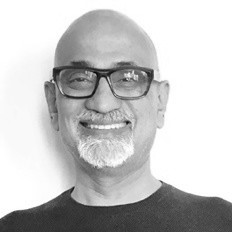 P. Anandan P. Anandan
CEO, Wadhwani Institute of Artificial Intelligence
P. Anandan is the CEO of Wadhwani Institute for Artificial Intelligence, an independent not-for-profit AI research Institute for social good based in Mumbai, India. Previous to this Anandan was VP for Research at the Adobe Research Lab India (2016-2017) and before that a Distinguished Scientist and Managing Director at Microsoft Research (1997-2016). Anandan was the founding director of Microsoft Research India which he ran from 2005-2014. Prior to this, Anandan was a researcher at Sarnoff Corporation (1991-1997) and an Assistant Professor of Computer Science at Yale University (1987-1991). His primary research area is Computer vision where he is well known for his fundamental and lasting contributions to the problem of visual motion analysis.
Anandan received his Ph.D. in Computer Science from the University of Massachusetts, Amherst in 1987, a Masters in Computer Science from University of Nebraska, Lincoln in 1979 and his BTech in Electrical Engineering from IIT Madras, India in 1977. He is a distinguished alumnus of IIT Madras, and UMass, Amherst and is on the Nebraska Hall of Computing. |
|---|
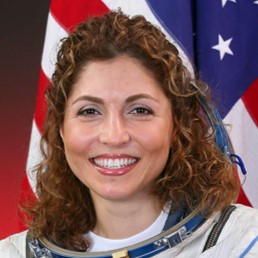 Anousheh Ansari Anousheh Ansari
Member & Chair of Management, XPRIZE Foundation Board of Directors, Space Ambassador; first female private space explorer
Dr. Anousheh Ansari is the Co-Founder and Chief Executive Officer of Prodea Systems, a leading Internet of Things (IoT) technology firm. When she launched her new company in 2006, she also blasted off for an 11-day space expedition, capturing headlines around the world for accomplishing her childhood dream of becoming the first female private space explorer, first astronaut of Iranian descent, first Muslim woman in space, and fourth private explorer to visit space.
As a successful serial entrepreneur and active proponent of world-changing technologies, Ansari, along with her family, sponsored the Ansari XPRIZE, a $10 million cash prize that ignited a new era in private space industries. She published her memoire, My Dream of Stars, to share her life story as inspiration for young women around the world.
Ansari is a Board of Directors Member & Chair of Management at the XPRIZE Foundation. She serves on the World Economic Forum’s Global Future Council and has received numerous honors, including the WEF Young Global Leader, Ellis Island Medal of Honor, and STEM Leadership Hall of Fame, among others.
Ansari is a UNESCO Good Will Ambassador and serves on the board of Jabil (NYSE: JBL) and Peace First, as well as several other not-for-profit organizations focused on STEM education and youth empowerment. She currently works to enable social entrepreneurs to bring about radical change globally, with organizations such as ASHOKA, which supports social entrepreneurship around the world.
Ansari holds a BS in electronics and computer engineering from George Mason University, an MS in electrical engineering from George Washington University; and honorary doctorates from George Mason University, Utah Valley University, and International Space University.
|
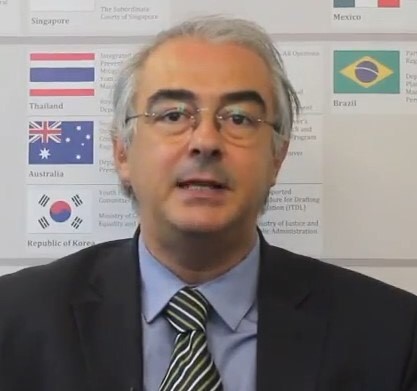 Vincenzo Aquaro Vincenzo Aquaro
Chief of Digital Government, Public Institutions and Digital Government Division, United Nations (remote)
Mr. Aquaro has more than 25 years of experience on ICT in public affairs, working for international organizations, private sector and civil society. He holds a Master Degree (Laurea Magistrale) in Electronic Engineering from the University of Bari, Italy.
In 2010 he has been appointed as Chief at the Digital Government Branch of the Division for Public Institutions & Digital Government of the United Nations Department of Economic and Social Affairs. Since then he has been leading a team of experts on the flagship UN e-Government programme and on the e-Government Survey. Part of his functions are also to assisting governments to advance public sector reform and improve the quality of public service delivery using innovation and ICT. By offering e-government capacity-building activities, promoting knowledge-sharing and providing training and online tools, he champions efficient, effective and SDGs people-centric public service delivery, based on the principles of leaving no one behind, transparency, accountability and inclusiveness.
Before joining the United Nations, from 2000 to 2010 he was CEO and Executive President of Formit Servizi SpA, an Italian corporate specialized in consulting, project management, monitoring and evaluation of e-government national and international projects. In his executive functions, in partnership with the Department of Informatics and Automation of the Faculty of Engineering of the Roma Tre University and with IBM Italia SpA, Mr. Aquaro co-chaired the first and the second Edition of the II level Master's Degree in ICT Governance: development, management and monitoring. In that period, he also served as executive officer of the FOundation for Research on Migration and Innovation Technologies (FORMIT), an international NGO in consultative status with ECOSOC, which promotes highly technological activities and knowledge transfer in STI areas, developing scientific studies and projects, technical support analysis and other activities related to sustainable development. In 2007 Mr. Aquaro also founded and chaired as CEO a multistakeholder Scientific Research Consortium, named CARMA, with the mission to provide advanced Basel II Risk Management e-services o the banks and SMEs in agriculture and agroindustry The Consortium was co-financed by European Commission and was run in partnership with academia, private sector and local government.
In 1998 he founded his own company - Aquaro & Co. Consulting, a boutique ICT consulting firm supporting prestigious research institutions, such as the Italian Football Federation – National Amateur League, the Italian Nation Research Council and the Italian Bosch Service solutions network. Before that, he used to work with progressively responsible professional experience in the provision of global ICT solutions, for an Italian telco enterprise (EIS SpA), at that time one of the European leading firms in turn-on-key filed-oriented ICT solutions for NATO and defense market. In 1990, in preparation for his master degree, he worker for six months as stager at European Space Agency/ESA-ESTEC - EURECA Space Program.
|
 Hila Azadzoy
Hila Azadzoy
Director of Partnerships, ADA HealthHila Azadzoy is an experienced social entrepreneur, dedicated to using the power of technology for social good. As part of Kiron Open Higher Education's founding team, an award-winning, global social start-up, she focused on removing barriers for refugees to higher education through smart digital solutions. As the Head of Academics Hila has shaped the continuous development of Kiron's academic program, developed relevant strategic partnerships and conducted substantial organization building. To date, Kiron has 4000 Students and operations in Germany, Jordan and Lebanon. Hila has been awarded with the Digital Female Leader Award, is an MIT Solver and a TedX Speaker. In 2018 Hila joined Ada Health to tackle global health challenges through Artificial Intelligence, specifically aiming to increase access to health for women and children in low and middle-income countries.
|
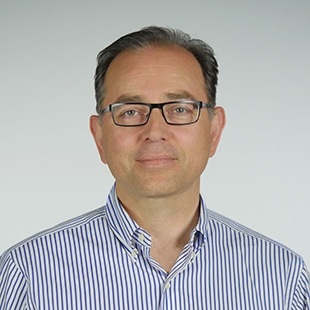 Amir Banifatemi Amir Banifatemi
AI Lead, XPRIZE
Amir Banifatemi is a thought leader, entrepreneur, and investor. He currently leads the global AI XPRIZE while managing two venture funds in US and Europe. He has more than 25 years of experience in development and growth of emerging and transformative technologies and focuses on working with growth-oriented companies on products and initiatives that could trigger significant breakthrough with strong economic and societal impact. |
Irakli Beridze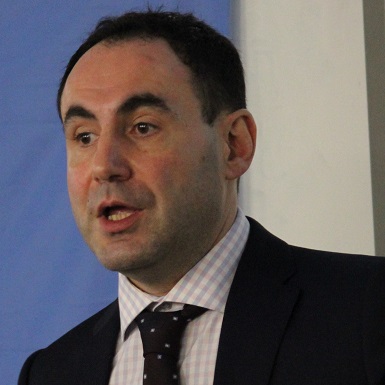
Head of the Centre for Artificial Intelligence and Robotics, UNICRI
More than 19 years of experience in leading multilateral negotiations, developing stakeholder engagement programmes, as well as scientific and technical cooperation, with governments, UN agencies, international organisations, think tanks, civil society, foundations, academia, private industry and other partners on an international level focused on impacts, opportunities and challenges of rapid technological change and innovation on sustainable development.
Heading the UNICRI Centre for Artificial Intelligence and Robotics with the objective to enhance understanding of the risk-benefit duality of AI through improved coordination, knowledge collection and dissemination, awareness-raising and global outreach activities.
Since 2014, Initiated and managed the UNICRI Programme on Artificial Intelligence and Robotics. Initiating and organizing number of high-level events at the United Nations General Assembly, and other international organizations. Finding synergies with traditional threats and risks as well as identifying solutions that AI can contribute to the achievement of the United Nations Sustainable Development Goals. He is responsible for initiating and organizing the UNICRI training, educational and mentoring programmes worldwide on AI and Robotics for wide range of stakeholders.
He is a member of various of international task forces and working groups advising governments and international organizations on numerous issues related to international security, scientific and technological developments, emerging technologies, innovation and disruptive potential of new technologies, particularly the impact of AI induced automation on social stability in the developing countries and transition economies.
In 2013 Initiated the establishment and coordinated the work of the United Nations Group of Friends of CBRN Risk Mitigation and Security Governance, as a forum for consultation and dialogue among permanent missions of the UN in New York. Prior to joining UNICRI served as a special projects officer at the Organization for the Prohibition of Chemical Weapons (OPCW) undertaking extensive missions in politically sensitive areas around the globe, and contributed in global anti-terrorism efforts to fight against chemical terrorism.
Recipient of recognition on the awarding of the Nobel Peace Prize to the OPCW in 2013. |
Matteo Berlucchi
CEO & Co-Founder, Your.MD; Entrepreneur in Residence, ETH Zurich
Matteo Berlucchi is a serial digital entrepreneur with more than 20 years experience in building large scale consumer services. Matteo is the CEO and co-founder of Your.MD, a leading AI health platform defining Pre-Primary Care, a new dimension in healthcare where digital health services can assist people in finding their best 'next steps' and in many cases self-care, a key element for the achievement of Universal Healthcare. Matteo is Entrepreneur in Residence at ETH Zurich, a member of the committee for AI Leadership at techUK, start-up mentor and advisor to UK Government on AI policy. Matteo holds a doctoral degree in Theoretical Physics from the University of Padua. |
Einar Bjørgo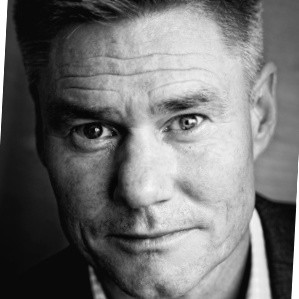
Manager, UN Operational Satellite Applications Programme (UNOSAT)
Einar Bjorgo is Manager of the United Nations Institute for Training and Research (UNITAR) Operational Satellite Applications Programme (UNOSAT), a function he took on in 2013. Since January 2018 he also manages UNITAR’s Capacity for Agenda 2030 Unit. In his capacity as head of UNOSAT Einar has ensured satellite image analysis is made timely available in support to humanitarian relief, sustainable development, environment, peace and security, human rights and international law inside and outside of the UN system. Through UNOSAT knowledge‐transfer mechanisms he also supports beneficiaries from UN Member States, regional organizations, sister agencies and NGOs with training and capacity development on geo‐spatial technologies. |
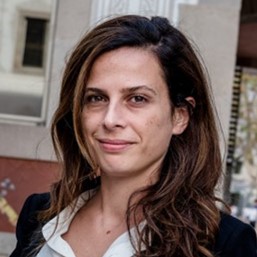 Francesca BriaCTIO, Barcelona City Council; Project Lead, DECODE
Francesca BriaCTIO, Barcelona City Council; Project Lead, DECODE
Francesca Bria is Senior Researcher and Advisor on Technology and Innovation policy. She has a PhD in Innovation Economics for Imperial College, London and MSc on Digital Economy from University of London, Birbeck. As Senior Programme Lead at Nesta, the UK Innovation Agency, she has led the EU D-CENT project, the biggest European Project on direct democracy and digital currencies. She also led the DSI project on Digital Social Innovation in Europe, advising the EU on digital social innovation policies. She has been teaching in several universities in the UK and Italy and she has advised Governments, public and private organizations and movements on Technology and Innovation policy, and its socio-economic impact.
Francesca Bria is an adviser for the European Commission on Future Internet and Innovation Policy. She is currently the Commissioner of Digital Technology and Innovation for the city of Barcelona in Spain and she is leading the DECODE project (http://decodeproject.eu) on data sovereignty in Europe. |
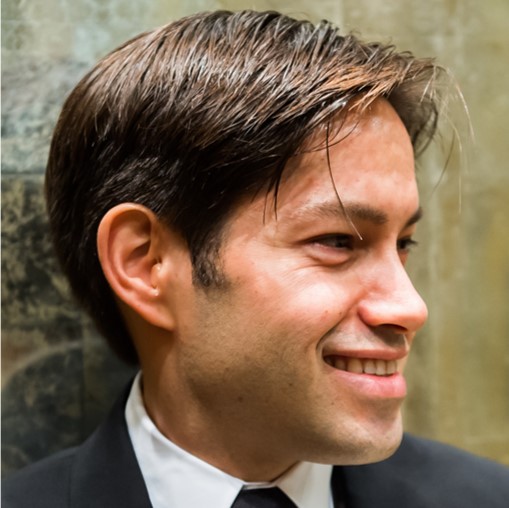 Ryan BudishAssistant Director Of Research, Berkman Klein Center for Internet & Society at Harvard University
Ryan BudishAssistant Director Of Research, Berkman Klein Center for Internet & Society at Harvard University
Ryan Budish is an Assistant Director for Research at the Berkman Klein Center for Internet & Society at Harvard University. Ryan currently helps lead the Center's Ethics and Governance of AI Initiative. Since joining the Berkman Klein Center in 2011, Ryan has contributed policy and legal analysis to a number of projects and reports, and he has led several significant initiatives relating to Internet censorship, corporate transparency about government surveillance, and multistakeholder governance mechanisms.
Ryan has written about the future of wearable technologies for The Atlantic, and has written about government surveillance for both The Guardian and The Atlantic. He has discussed his work on panels and in news media around the world. Ryan received his J.D. cum laude from Harvard Law School, where he was an editor of the Harvard Law Review. |
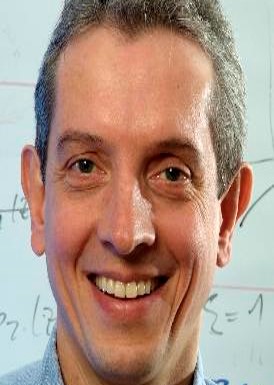 Wolfram Burgard
Wolfram Burgard
Professor of Computer Science and Head of Autonomous Intelligent Systems Lab, University of Freiburg
Wolfram Burgard is a professor for computer science at the University of Freiburg where he heads the group for Autonomous Intelligent Systems. His research lies in artificial intelligence and robotics. He is well-known for his contributions to autonomous navigation. He is Fellow of the IEEE, the AAAI and the EurAI. Currently he is president of the IEEE Robotics and Automation Society. |
 Marshall Burke Marshall Burke
Assistant Professor, Department of Earth System Science, Stanford University; Research Fellow, National Bureau of Economic Research
Marshall Burke is assistant professor in the Department of Earth System Science and Center Fellow at the Center on Food Security and the Environment at Stanford University, and Research Fellow at the National Bureau of Economic Research. His research focuses on social and economic impacts of environmental change, and on the economics of rural development in Africa. His work has appeared in both economics and scientific journals, including recent publications in Nature, Science, the Proceedings of the National Academy of Sciences, and the Review of Economics and Statistics. He holds a PhD in Agricultural and Resource Economics from UC Berkeley, and a BA in International Relations from Stanford.
|
 Frits Bussemaker Frits Bussemaker
Chair, Institute for Accountability and Internet Democracy (IAID)
Partner and Secretary General International Relations CIONET, a network of over 6500 CIOs and Digital leaders in Europe and South-America. He represents CIONET on a number of European Commission projects in the area of eSkills and eLeadership development. He founded the Global Digital Leaders Alliance, linking the CIO communities from China, India, Europe, Russia, South America and the US to each other and representing over 25.000 Digital Leaders. He is the founder and chair of iPoort a community for the members of the Dutch parliament to discuss the value and role of IT in the Dutch society. He sits on the board of advice of a number of international associations and academic institutions including the Global Industry Council Directors of the IP3, an UNESCO-consultative body, the Assciation for Accountability and Internet Democracy, the ACM Marketing Board, Digital Africa, IPBPM in Portugal, the BPM-Forum and General Council Netherlands. He has helped organize numerous conferences including WCIT2010; WCC2012; the World CIO Forum, Xian; Future of Finance, San Francisco; K.E.Y. Platform, Seoul, and several TEDx events. He is frequently asked to speak at or moderate events. Occasionally, he coaches organizations on collaboration and strategy. He has an MSc from Delft University. His goal is to explore the interaction of Information Technology, Innovation and Impact.
|
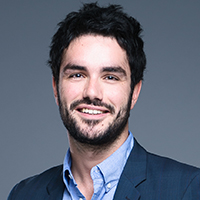 Alexandre CadainCo-Founder & CEO at ANIMA; XPRIZE AmbassadorAlexandre Cadain is an entrepreneur exploring ways for a radical, positive and inclusive innovation through deep technologies, especially AI. He is the co-founder and CEO of Anima, a moonshot studio designing solutions for massive, present and future challenges. The studio works with several governments and organisations to help them build the next breakthrough and scale tomorrow's businesses from urgent societal challenges, such as sustainable cities or lifelong learning. Alexandre is also an ambassador for the XPRIZE Foundation in Europe, especially helping with the AI and the Avatar Prizes. Alexandre CadainCo-Founder & CEO at ANIMA; XPRIZE AmbassadorAlexandre Cadain is an entrepreneur exploring ways for a radical, positive and inclusive innovation through deep technologies, especially AI. He is the co-founder and CEO of Anima, a moonshot studio designing solutions for massive, present and future challenges. The studio works with several governments and organisations to help them build the next breakthrough and scale tomorrow's businesses from urgent societal challenges, such as sustainable cities or lifelong learning. Alexandre is also an ambassador for the XPRIZE Foundation in Europe, especially helping with the AI and the Avatar Prizes.
|
|---|
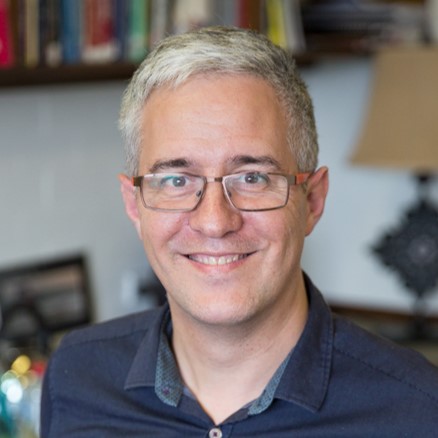 Rafael A. CalvoARC Future Fellow, Professor and Director of the Wellbeing Technology Lab at the University of Sydney
Rafael A. CalvoARC Future Fellow, Professor and Director of the Wellbeing Technology Lab at the University of SydneyRafael A. Calvo, PhD (2000) is Professor at the University of Sydney, and ARC Future Fellow. Director of the Wellbeing Technology Lab and of the Software Engineering Group that focuses on the design of systems that support wellbeing in areas of mental health, medicine and education. Calvo was appointed a Future Fellow of the Australian Research Council to study the design of wellbeing-supportive technology. A keen player in the push for more ethical technology design, Rafael is a member of the IEEE Global Initiative on Ethics of Autonomous and Intelligent Systems, a part of the UN's AI for Good Global Summit, and in 2019 will be joining the Leverhulme Centre for the Future of Intelligence.
He is the recipient of five teaching awards, and published four books and over 200 articles in the fields of HCI, wellbeing-supportive design, learning technologies, affective computing, and computational intelligence. His books include Positive Computing: Technology for Wellbeing and Human Potential(MIT Press) and the Oxford Handbook of Affective Computing. He has worked globally at Universities, high schools and professional training institutions including the Language Technology Institute at Carnegie Mellon University, Universidad Nacional de Rosario, and on sabbaticals at the University of Cambridge and the University of Memphis. Rafael has also worked as a technology consultant for projects in the US, Brasil, Argentina and Australia. He is Associate Editor for the Journal of Medical Internet Research – Human Factors (JMIR-HF) and former Associate Editor of the IEEE Transactions on Learning Technologies and IEEE Transactions on Affective Computing. He has a PhD in Artificial Intelligence applied to automatic document classification and has also worked at Carnegie Mellon University, Universidad Nacional de Rosario, and as a consultant for projects worldwide. |
|---|
 Joelle Casteix
Joelle Casteix
Founding Member, Board of Directors, The Zero Abuse ProjectJoelle is a member of the founding board of directors of the Zero Abuse Project, a new nonprofit focused on ending the global problem of the sexual exploitation of children. In addition to this work, Joelle is one of the leading global advocates and spokespeople for survivors of child sexual assault. A survivor herself, she has spent the past 15 years working with other survivors and worldwide victims’ groups to expose systemic child sexual abuse and cover-up within institutions. No one else has her depth of knowledge on the scope and scale of the problem worldwide and the effects of this crime on victims and communities. Her expertise includes how institutions such as the Roman Catholic Church, public schools, and other organizations cover-up and enable child sexual assault; the role parents play in prevention; and how to eradicate and end the cycle through emerging technology and strong victim-friendly legislation.
Joelle works with numerous organizations dedicated to stopping child sexual assault, child sex trafficking, and sexual assault within institutions. She speaks across the globe to groups such as schools, universities, governmental organizations, corporations, parents, NGOs, conventions, and civic groups on all aspects of child sexual abuse prevention, healing, and the exposure of the cover-up. Her TEDx talk is being used by therapists in the clinic setting to help survivors of abuse and assault.
Joelle's other books include: The Compassionate Response: How to help and empower the adult victim of child sexual abuse, and Scram! A Parent's Quick-Start Guide to Preventing, Identifying, and Ending Bullying. |
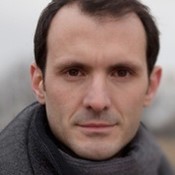 Stephen Cave
Stephen Cave
Executive Director, Leverhulme Centre for the Future of Intelligence at the University of Cambridge
Dr Stephen Cave is Executive Director of the Leverhulme Centre for the Future of Intelligence, Senior Research Associate in the Faculty of Philosophy, and Fellow of Hughes Hall, all at the University of Cambridge.
Stephen earned a PhD in philosophy from Cambridge, then joined the British Foreign Office, where he served as a policy advisor and diplomat. He has subsequently written and spoken on a wide range of philosophical and scientific subjects, including in the New York Times, The Atlantic, and on television and radio around the world. His research interests currently focus on the nature, portrayal and governance of AI. |
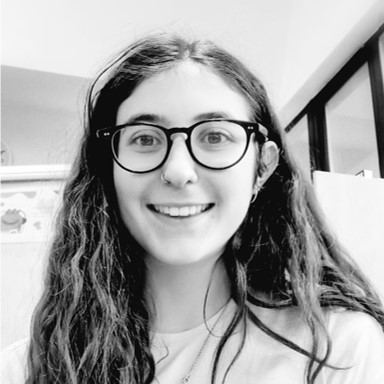 Sara Conejo Cervantes Sara Conejo Cervantes
Artificial Intelligence Task Force, Teens in AI
Sara Conejo Cervantes, 17. Having graduated from Coloma Convent Girls' School with GCSEs in the core subjects, Computer Science and Economics, Sara is currently studying for her A Levels in Maths, Further Maths, Physics and Computer Science, continuing on from GCSE, at King's College London Mathematics School. With two years of experience in coding, Sara regularly takes part in Hackathons and has she won a number of them. She recently took part in Alexa Bootcamp where she led her team to develop and publish an Alexa skill called
Optimus Maths. She did a two-week placement at Codex, a city-based data analytics firm where she wrote a piece of code used now in the platform. As well as this, Sara has accreditations from the Royal Institution in both Maths and Engineering. She has taken part in many MUN conferences and debates in and out of school. Her background of coding in Python and other languages has helped her to complete the task of building an AI with the ability to play smartphone games. Despite her strong background in Computer Science, Sara is currently undecided on what her path will be post-KCLMS, however she has indicated an interest in possibly studying Maths and Computer Science at university.
She is currently part of Artificial Intelligence Task Force at
Teens in AI and has recently written
her response to Lord Clement Jones
AI Report. |
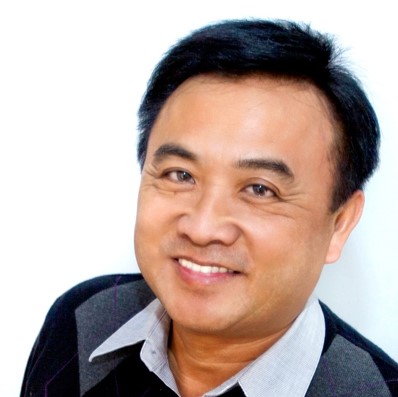 Andy Chen
Andy Chen
Andy Chen is the President & CEO of a global consulting firm. The firm’s principle business is to provide consulting services for utility industry worldwide. Andy is a senior business advisor for several leading global consulting firms and enterprise software vendors. Andy has over 30 years of experience in utility sectors specializing in Nuclear Power Generation. For the past eight years, Andy has been assisting leading global consulting firms in business development for the Nuclear Utilities in China and in North America. In recent years, Andy had provided advices on Enterprise Asset Management best practices for power generations to several government agencies and State Owned Enterprises (SOE) in China and Australia.
Andy is a member of Board of Governors and the 2018 vice president of the Professional and Educational Activities Board for IEEE Computer Society. He is also a director for the Federation of Enterprise Architecture Professional Organizations’ board and a member of the Technical Advisory Council for the FinTech Ideas Festival. He also served as the Chair of the Technical Advisory Council for YinTech Investment Holding Ltd. As an internationally recognized speaker, Andy was a keynote speaker at the UN ITU Telecom World and AI for Good Global Summit with XPRIZE Foundation, The Building Business Capabilities Conference, the World Computer Congress, the World CIO Forum, and the Digital Africa Conference.
Andy is a partner of REDDS Venture Investment partners which empower disruptive start-ups that scale worldwide and have billion dollars plus potential through team building, global business development, financing, mentoring, and strategy. Andy held the position of the Chief Technology Officer and Vice President, Enterprise Strategy and Architecture of a Canadian-based electricity generator. He also has extensive experience in a variety of engineering and systems roles within the company including managing a project to replace the obsolete direct control computers in a nuclear station which was the first successful implementation in the Nuclear Industry.
|
|---|
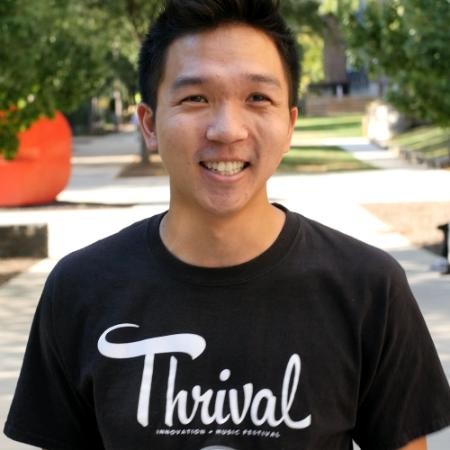 Kenny Chen Kenny Chen
Innovation Director, Ascender
Kenny Chen is the Innovation Director at Ascender, a Pittsburgh-based economic development organization that functions as a startup incubator, coworking space, community hub, and producer of the annual Thrival Innovation + Music Festival. In his role, Kenny focuses on facilitating strategic initiatives and cross-sector partnerships that leverage Pittsburgh's entrepreneurial and innovation ecosystems to advance global dialogues on ethics and policy considerations surrounding emerging technologies.
|
|---|
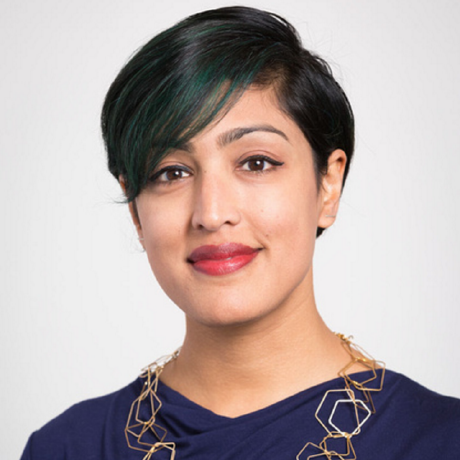 Rumman Chowdhury
Rumman Chowdhury
Senior Principal of AI, Accenture
Rumman Chowdhury’s passion lies at the intersection of artificial intelligence and humanity. She came to data science from a quantitative social science background. Currently, she is a Senior Principal at Accenture, working on cutting-edge applications of Artificial Intelligence and leading our Strategic Global Initiative on Responsible Artificial Intelligence. In her job she advises companies on ethical AI practices and work with organizations such as the World Economic Forum, and the IEEE's Wellbeing Metrics Standard for Ethical Artificial Intelligence and Autonomous Systems. In 2017 she was selected as one of the BBC 100 women as a part of #Teamlead tasked with tackling the glass ceiling by creating an app that can teach women to 'lean in' during meetings. In her spare time she serves on the Board of Directors for multiple AI startups and an AI mentor for Katapult Accelerator, an impact tech accelerator in Oslo, Norway, and am a teacher and advisor at a data camp startup that helps refugees learn skills for the digital economy. She is a Forbes Tech contributing author and have been named by InformationWeek as one of 10 influential AI and machine learning experts to follow on Twitter. She holds two undergraduate degrees from MIT, a master's degree in Quantitative Methods of the Social Sciences from Columbia University, and a doctorate in political science from the University of California, San Diego. She has emerged as a thought leader in the San Francisco data science community, with talks and tutorials at Intel Analytics Conference, Open Data Science Conference, Machine Learning Conference, Women Catalysts, PyBay, and Demystifying AI Conference. In mainstream media, she has been interviewed for the BBC, German public television, and fashion line MM.LaFleur. In 2017, she had talks at the Global Artificial Intelligence Conference, Southern Data Science Conference, and Strata + Hadoop London. She has also been a university-level instructor, teaching classes in Research Design, Quantitative Analysis, American Politics, Political Theory, and Statistical Programming in STATA, R and Python. |
|---|
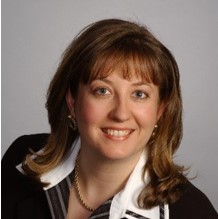 Cathy Cobey Cathy Cobey
Partner - Risk Advisory Services, EY
Cathy Cobey is a Partner in EY's Risk practice, advising clients on the risk and control implications of legacy and emerging technologies. She leads a global team that considers the ethical and control implications of artificial intelligence and autonomous systems. Cathy leverages her unique background as a CPA and Technology Risk Advisor, with her involvement with EY's Climate Change & Sustainability practice to consider the full spectrum of technological and societal implications in intelligent automation development.
In developing EY's risk and control framework for AI/AS, Cathy and her team have created a set of principles to assess if AI can be trusted – for example, it is unbiased, transparent, inclusive and accountable. Cathy is the co-presenter of EY's Managing the Risks of AI video series, and author of a number of accompanying blog posts exploring the need for a trusted, balanced approach to AI development.
A technology risk advisor and auditor for 23 years, Cathy works with businesses in the areas of business and IT controls, system implementations, enterprise risk management, risk management and governance, internal audit projects and third-party reporting. She is leveraging her in-depth knowledge of legacy technology IT risk & control frameworks to guide governance teams in the development of similiar frameworks for emerging technologies.
Co-founder of the Canadian Climate Change & Sustainability practice, Cathy has advised International and Canadian standard setters on social and environmental subject areas, and developed EY's assurance methodology for greenhouse gas reporting, diversity metrics, health & safety, conflict-free minerals, green bonds and responsible gaming. |
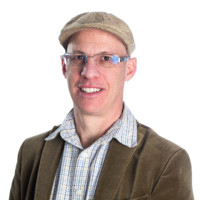 Boyd CohenDeputy Director of Research, EADA Business School and a jointly appointed faculty at the Universitat de Vic, Co-founder, IoMob.net Boyd Cohen, Ph.D., is an urban strategist focused on the areas of urban innovation, entrepreneurship, smart cities and urban mobility. He has published 3 books (Climate Capitalism, 2011; The Emergence of the Urban Entrepreneur, 2016; Post-capitalist Entrepreneurship, 2017). He is Deputy Director of Research at EADA Business School and a jointly appointed faculty at the Universitat de Vic. In 2017, he co-founded IoMob.net, a blockchain startup seeking to decentralize the mobility sector by providing an open protocol for the Internet of Mobility (IoM).
Boyd CohenDeputy Director of Research, EADA Business School and a jointly appointed faculty at the Universitat de Vic, Co-founder, IoMob.net Boyd Cohen, Ph.D., is an urban strategist focused on the areas of urban innovation, entrepreneurship, smart cities and urban mobility. He has published 3 books (Climate Capitalism, 2011; The Emergence of the Urban Entrepreneur, 2016; Post-capitalist Entrepreneurship, 2017). He is Deputy Director of Research at EADA Business School and a jointly appointed faculty at the Universitat de Vic. In 2017, he co-founded IoMob.net, a blockchain startup seeking to decentralize the mobility sector by providing an open protocol for the Internet of Mobility (IoM). |
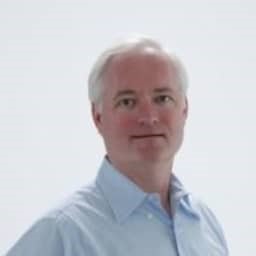 James CrawfordCEO and Founder, Orbital Insight
James CrawfordCEO and Founder, Orbital Insight
After leading software research and development for over two decades, Jimi is founder & CEO of Orbital Insight. Orbital Insight helps business and policy decision makers understand economic and societal trends through geospatial analytics. His corporate focus is to develop artificial intelligence, machine learning, and computer vision, creating a new source of market data for diverse industries.
Before a successful $1B Monsanto acquisition, Jimi was the SVP of Science and Engineering at the Climate Corporation. Prior to that, he was CTO and Software Architect at Moon Express whose goal was putting the first commercial robot on the moon. As the Engineering Director for Google Book Search, he was in charge of Google’s project to scan, index, and makesearchable all the world’s books. As EVP of Engineering at Composite Software, he led product development around data visualization. At Nasa Ames Research Center, Jimi led Autonomy and Robotics projects and authored over 15 peer reviewed publications, resulting in five patents. Jimi earned his PhD and Master’s degrees in Computer Science from the University of Texas at Austin, and BA in Math and Computer Science from Rice University. He has a long-term interest in photography which led him, most recently, to eastern Idaho to photograph the August total eclipse.
|
David Danks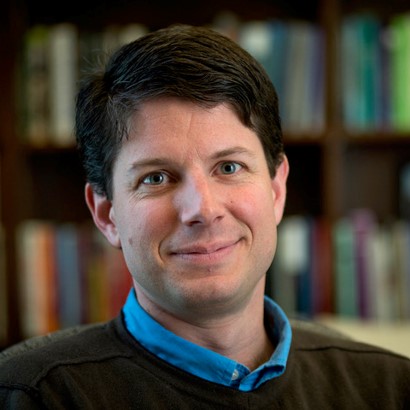
Department Head and Professor of Philosophy and Psychology, Carnegie Mellon University
David Danks is the L. L. Thurstone Professor of Philosophy & Psychology, and Head of the Department of Philosophy, at Carnegie Mellon University (as well as adjunct faculty in the Heinz College of Information Systems and Public Policy). He works at the intersection of philosophy, cognitive science, and machine learning, integrating ideas, methods, and frameworks from each to advance our understanding of complex, cross-disciplinary problems. Most recently, Danks has used interdisciplinary approaches to address the human and social impacts when autonomous capabilities are introduced into technological systems, whether self- driving cars, autonomous weapons, or healthcare robots. His work is both theoretical and practical, including collaborations with industry groups and government agencies. His earlier work on computational cognitive science resulted in the book, Unifying the Mind: Cognitive Representations as Graphical Models (2014; The MIT Press) which developed an integrated cognitive model of complex human cognition. Danks is the recipient of a James S. McDonnell Foundation Scholar Award (2008), and an Andrew Carnegie Fellowship (2017). |
Renato De Castro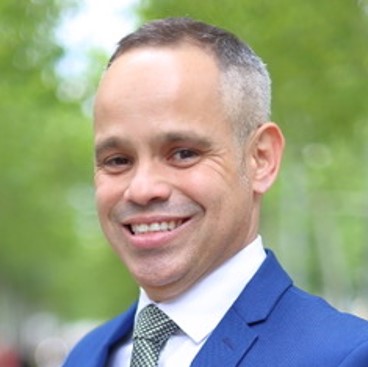
Smart City Expert - International Investment Attraction
Renato de Castro is a Smart City Expert. He is the ambassador of Smart Cities at the TM Forum from London and a member of the global advisory board at the NGO Leading Cities from Boston. He has accumulated over two decades of experience as a global executive within Asia, the Americas and Europe. He is fluent in 4 languages, and is a PhD candidate in Global Law at Autonomous University of Barcelona (UAB). Renato has visited more than 30 countries, lecturing about smart cities and advising governments on urban projects. Currently, he is based in Barcelona where he serves as CEO in a disruptive spinoff related to Smart Cities. |
 Rebecca Distler Rebecca Distler
Director of Global Health Initiatives, Element Inc
Rebecca Distler is Director of Global Health Initiatives at Element Inc., where she works with partners across Africa and Asia to use mobile biometric platforms to link patients to care. She also co-leads the BioNIC initiative, a collaboration with Global Good to develop the world's first infant biometrics solution, for use in birth registration, immunization, and child health programs. Prior to Element, Rebecca worked at Global Health Strategies, supporting the Bill & Melinda Gates Foundation's Grand Challenges initiative, and with the Clinton Global Initiative and the WHO Regional Office in Fiji. She holds a BA from Yale University and a MPH in Health Policy and Global Health from the Yale School of Public Health. |
 Carla Dualib SonnewendSecretary of Communication and Press from Diadema City Hall, Brazil Carla Dualib is a communicator. She is the Secretary of Communication and Press from Diadema City Hall, leading a projects to transform the city using innovation, technology and inteligence. She has a solid background in marketing and communication which is now being used to strengthen innovation ecossystem and empower citizen so everyone can help actively in the process of building a future together with the city administration.
Carla Dualib SonnewendSecretary of Communication and Press from Diadema City Hall, Brazil Carla Dualib is a communicator. She is the Secretary of Communication and Press from Diadema City Hall, leading a projects to transform the city using innovation, technology and inteligence. She has a solid background in marketing and communication which is now being used to strengthen innovation ecossystem and empower citizen so everyone can help actively in the process of building a future together with the city administration. |
 Joseph Dunn Joseph Dunn
Founding Chair, Board of Directors, The Zero Abuse Project
Senator Dunn (Ret.) is the founding Chair, Board of Directors,, of the Zero Abuse Project, a new nonprofit focused on reducing the incidence of sexual exploitation of children in all of its forms on a global basis.
Senator Dunn is also currently the Assistant Dean of External Relations as well as a Lecturer at the UCI School of Law. He serves as the primary point person for the launch of the UCI Cybersecurity Policy and Research Institute, the Civil Justice Research Institute, and the UCI Institute on Policing in Society.
Senator Dunn was a member of the California State Senate from 1998-2006. While serving in the Legislature, he chaired key committees such as the Senate Judiciary Committee and the Senate Housing and Transportation Committee. He received international acclaim as Chair of the Senate Investigation Committee into the 2001 California Energy Crisis. California Lawyer Magazine labeled Senator Dunn as “the Man Who Cracked Enron.”
Between 2006-2014, Sen. Dunn served as CEO of both the State Bar of California, the judicial branch regulatory body overseeing all aspects of the profession of law, and the California Medical Association, the most influential state medical organization in the nation, representing more than 30,000 California doctors.
Prior to entering the Senate, Senator Dunn practiced law, handling cases involving the sexual exploitation of children, products liability litigation relating to defective medical devices and pharmaceuticals, and environmental cases.
He received his Juris Doctor, cum laude, from the University of Minnesota School of Law (1983) and his B.A magna cum laude from The College of St. Thomas (1980). |
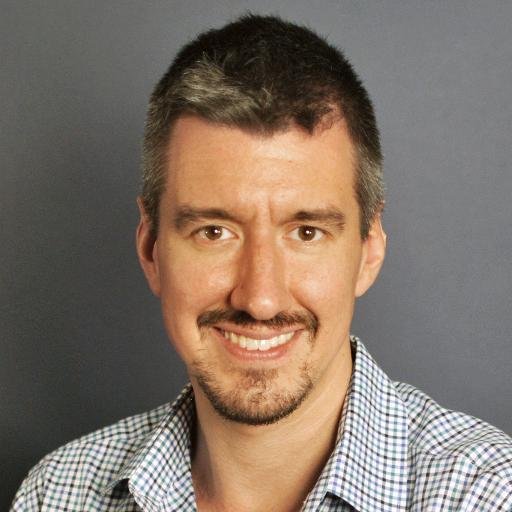 Christopher FabianPrinciple Advisor on Innovation, Lead, UNICEF Ventures Christopher Fabian (@hichrisfabian) is a technologist who co-founded UNICEF's Innovation Unit in 2006 with Erica Kochi. He currently runs UNICEF Ventures, a team which looks at emerging technologies in the service of positive global change. In 2015, he led the launch of UNICEF's Venture Fund, the first fund of its kind in the United Nations which invests in early stage "frontier technology" like drones, data science, machine learning, crypto-currency, 3D printing, nano satellites, and genetics. The Innovation Fund (11.2M$) has made over 30 investments in 26 countries. Chris's teams have worked on infrastructure platforms for low infrastructure environments, including award winning work on RapidPro, an SMS-based information system with more than 3.5M active users in 35 countries.Chris is currently focused on scaling UNICEF's work on data science and drones. UNICEF Ventures has invested in "Magic Box," an open source data analytics platform that combines data and engineering from companies like Amadeus, IBM, Google, Telefonica, and others to produce insights and new scientific methods that help the organization make better real-time decisions. Chris lectures at universities including NYU, Tsinghua, and Singularity at NASA.. In 2013 he was recognized as one of TIME Magazine's "100 Most Influential People."
Christopher FabianPrinciple Advisor on Innovation, Lead, UNICEF Ventures Christopher Fabian (@hichrisfabian) is a technologist who co-founded UNICEF's Innovation Unit in 2006 with Erica Kochi. He currently runs UNICEF Ventures, a team which looks at emerging technologies in the service of positive global change. In 2015, he led the launch of UNICEF's Venture Fund, the first fund of its kind in the United Nations which invests in early stage "frontier technology" like drones, data science, machine learning, crypto-currency, 3D printing, nano satellites, and genetics. The Innovation Fund (11.2M$) has made over 30 investments in 26 countries. Chris's teams have worked on infrastructure platforms for low infrastructure environments, including award winning work on RapidPro, an SMS-based information system with more than 3.5M active users in 35 countries.Chris is currently focused on scaling UNICEF's work on data science and drones. UNICEF Ventures has invested in "Magic Box," an open source data analytics platform that combines data and engineering from companies like Amadeus, IBM, Google, Telefonica, and others to produce insights and new scientific methods that help the organization make better real-time decisions. Chris lectures at universities including NYU, Tsinghua, and Singularity at NASA.. In 2013 he was recognized as one of TIME Magazine's "100 Most Influential People." |
|---|
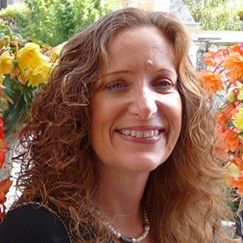 Dafna Feinholz
Dafna Feinholz
Chief of Section, Bioethics and Ethics of Science, UNESCO
Dr Dafna Feinholz-Klip, Mexican by birth, is UNESCO’s Chief of Bioethics and Ethics of Science and Technology (Division of Youth, Ethics and Sports at the Social and Human Sciences Sector). A psychologist and bioethicist by training, she previously worked as as a researcher in charge of reproductive epidemiology department, and was a member of the Mexican Research Council, she was the Director of the Women and Health Program in Mexico, the Academic Co-ordinator of the Mexican National Commission of the Human Genome, the Executive Director of the Mexican National Commission of Bioethics, until she joined the UNESCO in 2009. From 2000-2006, she was the Founder and Chair of the Latin American Forum for Ethics Committees for Health Research (FLACEIS), an organisation supported by the WHO. In her work for the UNESCO, she helps set up and support national ethics committees and ethics committee training around the world.
|
|---|
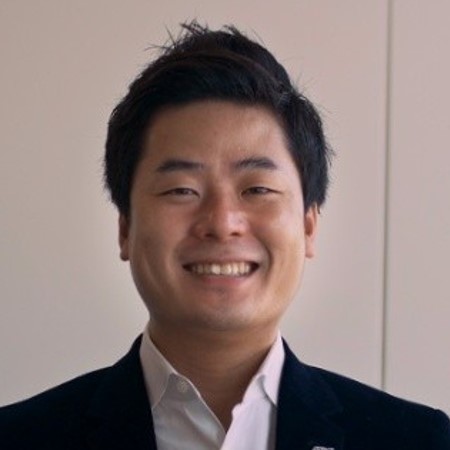 Akira Fukabori Akira Fukabori
ANA AVATAR Co-Director, ANA Holdings Inc.
Akira has a vision to leverage the strengths of airlines to connect all 7.5 billion people on earth. He belongs to ANA's newly established Digital Design Lab and is a prize developer behind the ANA AVATAR XPRIZE concept which won top honors at the XPRIZE Visioneers 2016 Summit. Akira entered ANA in 2008 after graduating from Tokai University with a degree in Aeronautics & Astronautics. His Blue Wing business model, which is a partnership model that bridges for-profit and non-profit organizations, was the grand prize concept of the Tokyo-based 2010 Global Agenda Seminar program. This earned Akira an invitation to the 2011 World Economic Forum. Akira is a serial intrapreneur who has helped to launch multiple initiatives within ANA together with his colleague Kevin Kajitani. |
|---|
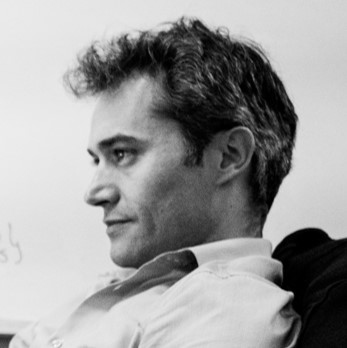 Manuel García-HerranzChief Scientist, UNICEF InnovationManuel is the chief scientist at UNICEF Office of Innovation (NY) where he has been working since 2014. He holds a Ph.D in Computer Science from the Universidad Autónoma de Madrid. At UNICEF he focuses on bridging the gap between Data Science and the most vulnerable, looking at Big Data, complex systems theory and AI and how they can be applied to and focused on the most deprived and invisible. Fields of application include growing humanitarian problems such as epidemics, natural disasters or migration and transversal issues such as monitoring development indicators, data representativeness or the inclusion of inequality concepts in the body of computer science theories.
Manuel García-HerranzChief Scientist, UNICEF InnovationManuel is the chief scientist at UNICEF Office of Innovation (NY) where he has been working since 2014. He holds a Ph.D in Computer Science from the Universidad Autónoma de Madrid. At UNICEF he focuses on bridging the gap between Data Science and the most vulnerable, looking at Big Data, complex systems theory and AI and how they can be applied to and focused on the most deprived and invisible. Fields of application include growing humanitarian problems such as epidemics, natural disasters or migration and transversal issues such as monitoring development indicators, data representativeness or the inclusion of inequality concepts in the body of computer science theories. |
|---|
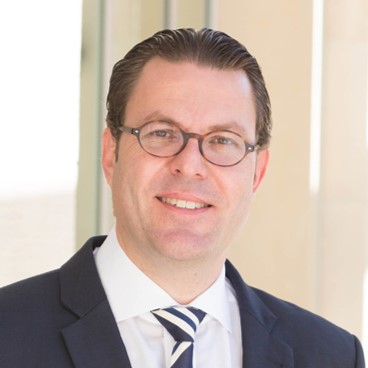 Urs GasserExecutive Director, Berkman Klein Center for Internet & Society at Harvard University
Urs GasserExecutive Director, Berkman Klein Center for Internet & Society at Harvard University
Urs Gasser is the Executive Director of the Berkman Klein Center for Internet & Society at Harvard University and a Professor of Practice at Harvard Law School. His research and teaching activities focus on information law, policy, and society issues and the changing role of academia in the digitally networked age. Current projects – several involving the Global Network of Internet & Society Centers, which he helped to incubate – focus on the governance of evolving and emerging technologies such as Cloud Computing, the Internet of Things, Augmented Reality, and Artificial Intelligence, with a particular interest in privacy and security issues and the broader implications of these technologies, including questions of agency and autonomy. As a longer term research interest, he studies the patterns of interaction between law and innovation, and innovation with the legal system in the digital age. Dr. Gasser has written and edited several books on digital technology issues, and published over 100 articles in professional journals. He is the co-author of “Born Digital: Understanding the First Generation of Digital Natives” (Basic Books, 2008 and 2016, with John Palfrey), which has been translated into 10 languages (including Chinese), co-author of “Interop: The Promise and Perils of Highly Interconnected Systems” (Basic Books, 2012, with John Palfrey), and author of the forthcoming book “The Future of Digital Privacy: A Navigation Aid” (MIT Press, 2017). Additional information about his research can be found on his SSRN author page. In addition to his appointments at Harvard, Urs Gasser is a guest professor at KEIO University (Japan), was a visiting professor at the University of St. Gallen (Switzerland), and taught at Fudan University School of Management (China). He serves as a trustee on the boards of the NEXA Center for Internet & Society at the University of Torino, the Digital Asia Hub, and the Research Center for Information Law at the University of St. Gallen. He was fomerly a member of the International Advisory Board of the Alexander von Humboldt Institute for Internet and Society in Berlin, a Fellow at the Gruter Institute for Law and Behavioral Research, and served as a Senior Advisor to the World Economic Forum’s Future of the Internet Initiative. Urs graduated from the University of St. Gallen (lic.iur., Dr.iur.) as well as Harvard Law School (LL.M. ‘03) and received several academic awards and prizes for his research, including Harvard’s Landon H. Gammon Fellowship for academic excellence and the “Walther Hug-Preis Schweiz,” a prize for the best doctoral thesis in law nationwide, among others. Before returning to the Berkman Klein Center as Executive Director in 2009, Urs Gasser was an Associate Professor of Law at the University of St. Gallen, where he led the Research Center for Information Law as Faculty Director. Prior to his St. Gallen appointment, Urs spent three years as a resident fellow at the Berkman Klein Center, where he was later appointed Faculty Fellow. He also initiated and chaired the Harvard-Yale-Cyberscholar Working Group, and was a visiting researcher at Harvard Law School. Dr. Gasser frequently acts as a commentator on digital technology, policy, and society issues for the US and European media. The disclosure of related outside interests and activities can be found here. |
|---|
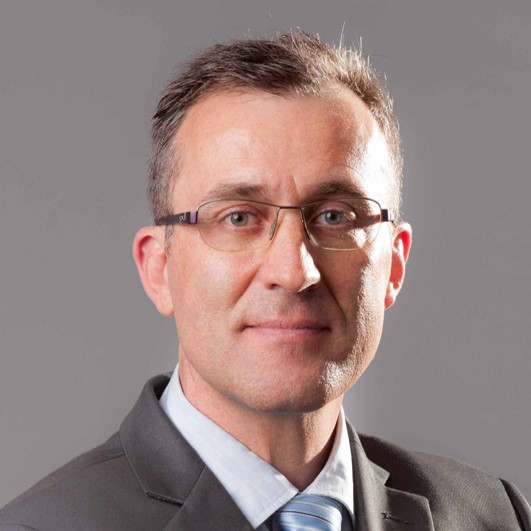 Stefan Germann
Stefan Germann
CEO, Foundation Botnar
Stefan Germann, CEO of Fondation Botnar, a large foundation in Basel Switzerland focusing on child health, nutrition and education. Stefan is tasked as first CEO to set up the management office and lead the foundation in the next stage of its development.
Formerly, Executive Director onegoalglobal.org (an innovative collaborative child nutrition and healthy lifestyle campaign), and Senior Director of World Vision International Sustainable Health Partnership, Innovation and Accountability unit based in Kuala Lumpur, Malaysia. World Vision operates currently in almost 100 countries.
He worked for over 15 years in Africa in various health leadership roles with different agencies in the area of child health related development, relief and advocacy work. His worked included managing a large rural hospital in Zimbabwe.
In 2005 he started to work with World Vision International's emergency relief team as the director for the integrated technical sector teams in the Asia Tsunami response. This was a complex relief & reconstruction program where he was based in Asia. This program included major health components, including primary health care rehabilitation in Sri Lanka and mHealth projects for midwives in Aceh, Indonesia. He held a number of board and advisory board memberships (Partnership for Maternal, Newborn and Child Health, UBS Optimus Foundation, REPSSI in Africa) and currently is on the Advisory Board of the Global Health Program, The Graduate Institute – Geneva focusing on the role of NGOs in global health diplomacy. He holds a micro-engineering BSc degree, an MSc degree (Economics) in Social Policy & NGO Management and completed in 2005 a doctoral degree in Development studies focusing on child well-being in urban African context. Stefan finished in 2015 an executive Masters program in Tri Sector Collaboration at Singapore Management University.
|
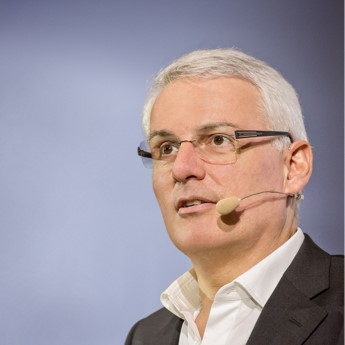 Bruno Giussani Bruno Giussani
Global Curator, TED
Bruno Giussani is the Global Curator of TED, the nonprofit organization behind the popular online TEDTalks and the TED and TEDx conferences. He joined the organization in 2005 as its European Director and helped build what was a once-a-year conference into a global platform for identifying and disseminating ideas and knowledge. TEDTalks have been seen 4.5 billion times last year, and the organization has expanded into education (TED-Ed and collaborations with education publishers), books (TEDBooks), television (TEDTalks India), radio (TED RadioHour), in addition to a significant social media presence and podcast production. It also runs a global Fellowship and a Residency program, among many other initiatives. TED, IBM Watson and the xPrize have launched in 2016 a $5million competition to develop and demosrate effective collaboration between human and AI, the winner of which will be chosen by the audience at TED's main annual conference in Vancouver, Canada, in 2020, among three finalist AIs, or AI-human partnerships, that will take the stage to deliver a TEDTalk. |
 Elena Goldstein
Elena Goldstein
Project Coordinator on the Ethics and Governance of Artificial Intelligence initiative, Berkman Klein Center for Internet & Society at Harvard University
Elena Goldstein is a Project Coordinator at the Berkman Klein Center for Internet & Society supporting the Ethics and Governance of Artificial Intelligence initiative. Her research interests include privacy and consumer protection, global digital rights advocacy, the evolution of labor, and the rich literature/sociology/technology intersection. Prior to joining the AI ethics and governance cohort, Elena was a Research Assistant contributing to the Youth and Media team’s online privacy project. Before BKC, she wrote an honors thesis on the new Library of Alexandria’s Digital Age memory politics/poetics, and carried out university-sponsored independent studies on technology in the dystopian novel and digital diplomacy. She also worked for Access Now, the Council on Foreign Relations, the U.S. Mission to the United Nations, Alwan for the Arts, and a couple Manhattan restaurants. Elena graduated Phi Beta Kappa and Summa Cum Laude from Columbia University where she majored in Comparative Literature & Society and Middle Eastern Studies. She loves to eat, read, and play (diatonic and occasionally chromatic) harmonica. |
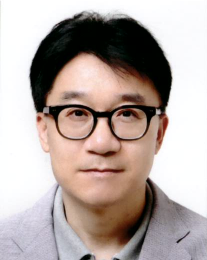 Jeon Gue Park Jeon Gue Park
Principal Researcher and Project Leader, Electronics and Telecommunication Research Institute (ETRI)
Dr. Jeon Gue Park is a principal researcher and project leader of Electronics and Telecommunication Research Institute (ETRI). He had worked for ETRI as a senior researcher since 1991, Lernout and Hauspie (L&H) as a director and division head since 2000, Carnegie Mellon University as a visiting scholar since 2001, and Donga Seetech Inc. as a director and CTO since 2002. He rejoins ETRI in 2004. He is currently leading the artificial intelligence and spoken dialogue processing research in Speech Intelligence Research Group. His current research interests include artificial intelligence, computer-assisted language learning, spoken dialogue system, and cognitive systems.
|
|---|
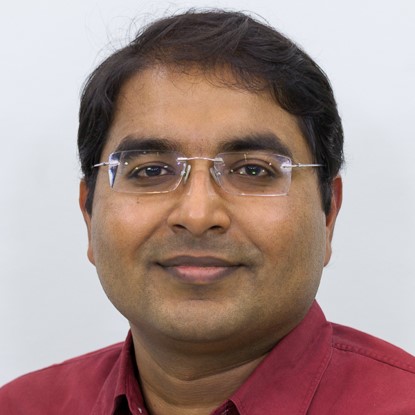 Krishna Gummadi
Krishna Gummadi
Head of Networked Research Systems Group, Max Planck Institute for Software Systems
Krishna Gummadi is a tenured faculty member and head of the Networked Systems research group at the Max Planck Institute for Software Systems (MPI-SWS) in Germany. He also holds an honorary professorship at the University of Saarland.
Krishna's research interests are in the measurement, analysis, design, and evaluation of complex Internet-scale systems. His current projects focus on understanding and building social computing systems. Specifically, they tackle the challenges associated with enhancing fairness and transparency of machine (data-driven) decision making in social computing systems.
Krishna's work on online social networks, Internet access networks, and peer-to-peer systems has been widely cited and his papers have received numerous awards, including SIGCOMM Test of Time, IW3C2 WWW Best Paper Honorable Mention, and Best Papers at NIPS ML & Law Symposium, ACM COSN, ACM/Usenix SOUPS, AAAI ICWSM, Usenix OSDI, ACM SIGCOMM IMC, and SPIE MMCN. He received an ERC Advanced Grant in 2017 to investigate "Foundations of Fair Social Computing". |
|---|
Dominic Haazen
Lead Health Policy Specialist, World Bank
Dominic S. Haazen is a Lead Health Policy Specialist with the Health Nutrition and Population Global Practice of the World Bank, where he is responsible for managing and providing technical expertise in a number of countries, including Gabon, Cote d’Ivoire, Morocco, Sierra Leone, Tanzania, Malawi, Kosovo, Uzbekistan and Malawi. He is an expert in the areas of health information systems/e-Health, emergency medical services, health financing, and health system management. He has worked in over to 60 developing countries, primarily in the Africa, Europe and Central Asia, and Middle East and North Africa regions, and has had field assignments in Dar es Salaam, Tanzania (2008-2011), and Riga, Latvia (2002-2004).
Prior to joining the Bank in 1998, he worked as a private consultant in the areas of health financing, health planning, and operational reviews of health providers, and held senior positions in the British Columbia (Canada) Ministry of Health, including CFO/CIO of the division responsible for funding hospitals and long-term care, and CEO of the British Columbia Ambulance Service (a province-wide emergency medical services provider). He holds B.Sc. (Mathematics/Computer Science) and Masters in Public Administration degrees and is a Chartered Professional Accountant (Canada).
|
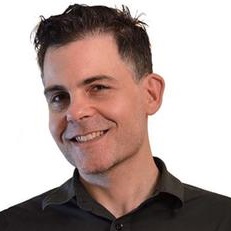 David Hansen David Hansen
Founder and CEO, Hanson Robotics
Dr. Hanson is the founder and CEO of Hanson Robotics Limited. He brings a strong history of innovation and leadership in robotics, arts, academia, and entrepreneurship. Envisioning, organizing, and executing renowned projects in cognitive robotics, AI, the arts, education, product design, and business. In the past decade, he has built a worldwide reputation for creating the world’s most humanlike, empathetic robots, endowed with remarkable expressiveness, aesthetics and interactivity. He has produced many renowned, one-of-a-kind robot characters that have received massive media and public acclaim.
Dr. Hanson publishes regularly in materials science, artificial intelligence, cognitive science, and robotics journals, including the international society for optics and photonics (SPIE), The Institute of Electrical and Electronics Engineers (IEEE), the International Journal of Cognitive Science, IROS, the Association for the Advancement of Artificial Intelligence (AAAI) and AI magazine. He has been featured in numerous popular media outlets including New York Times, Popular Science, Scientific American, the BBC and CNN. He has been labeled a "genius" by both PC Magazine and WIRED, and has earned awards from NASA, NSF, AAAI, Tech Titans’ Innovator of the Year, and Cooper Hewitt Design Triennial.
At Walt Disney Imagineering, Dr. Hanson worked as both a sculptor and a technical consultant. He has spoken at venues including IEEE, SPIE, AAAI, DARPA, Massachusetts Institute of Technology (MIT), Dartmouth College, Brown University, Google, Sandia Labs, UCSD and AAAS annual meeting. Dr. Hanson received his BFA from Rhode Island School of Design in film/animation/video, and his Ph.D. from the University of Texas at Dallas, in interactive arts and engineering.
Dr. Hanson is working towards radical breakthroughs in humanizing robots—for machines with human-level intelligence, creativity, and physical capabilities, as well as humanlike compassion and understanding, to enable them to truly care, become our friends, and collaborate with us towards a better future. Ultimately, he aims to create a new generation of robots that exceed human brilliance, compassion, and wisdom—robots that he calls “Genius Machines.” He believes that, in addition to science and tech, arts and aesthetics are key, both to inspiring humans to care about machines, and to enable robots to achieve human standards of social intelligence, relationships, and ethics.
|
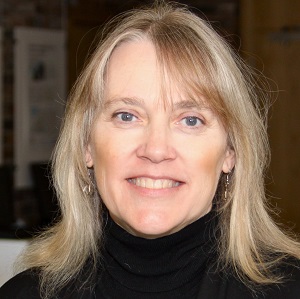 Vicki Hanson Vicki Hanson
President, Association for Computing Machinery
Vicki Hanson currently serves as President of ACM (the Association for Computing Machinery).
She is a Distinguished Professor at the Rochester Institute of Technology in the USA and holds a Chair of Inclusive Technologies at the University of Dundee in Scotland. She also is a Visiting Professor in the Data Science Institute at Lancaster University in England. From 1986 – 2009 she was a Research Staff Member and Manager at IBM’s T. J. Watson Research Center in New York, founding their Accessibility Research Group in 2000.
Vicki’s research focus is on accessibility of technology for people with disabilities, the aging population, and related research ethics. At RIT, she is a co-director of the Center for Accessibility and Inclusion Research (CAIR). For her work, she has been recognized both by industry and professional organizations, including an IBM Corporate Award, a Royal Society Wolfson Research Merit Award, the Social Impact Award from the Anita Borg Institute, the ACM SIGACCESS Award for Contributions to Computing and Accessibility, and most recently her election to the ACM CHI Academy.
She is a Fellow of the Royal Society of Edinburgh, a Chartered Fellow of the British Computer Society, and a Fellow of the ACM. In July 2017, Vicki will be awarded an Honorary Doctor of Science degree from Newcastle University.
Follow Vicki on Twitter @ACM_President
|
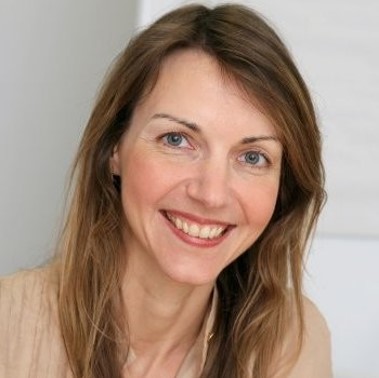 Celine Herweijer
Celine Herweijer
Partner, Innovation and Sustainability, PwC UK
PhD in Computer Modelling and Earth Sciences, Columbia University, New York, and NASA Fellow. PwC Partner, leads PwC's Innovation and Sustainability work, including the firm's collaboration with WEF and Stanford University on the "4IR for Earth" programme. WEF Young Global Leader. Expertise in innovation, emerging technologies incl. AI, climate change, sustainable finance, international development and business with purpose. Advises government, industry, tech and investor clients across North America, Europe and emerging and developing economies on innovation and emerging tech strategy, deals, and transformation, sustainability, and innovation finance, and impact investment. Member of the T20 Digital Economy Taskforce, and has acted as key advisor to the G20, G7, World Economic Forum, UN, New Climate Economy, and numerous governments on climate change, tech transformation and the digital economy. 2016-2018 member of WEF Global Future Council, and Advisory board member of the Business Commission on Sustainable Development. Visiting Senior Research Fellow, Grantham Research Institute at London School of Economics.
|
|---|
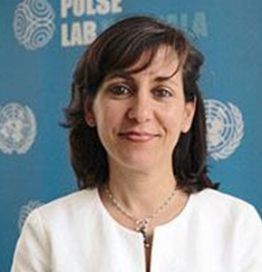 Paula Hidalgo-Sanchis
Paula Hidalgo-Sanchis
Manager of Pulse Lab Kamapala, UN Global Pulse
Paula Hidalgo-Sanchis, PhD from Spain has worked for over 16 years as a developer practitioner. She has been working for the past several years as Manager of Pulse Lab Kampala in Uganda. A result driven professional, she has extensive field experience working as humanitarian and development practitioner in more than 20 countries. She has served as Social Policy Advisor and Manager on Innovations working with the United Nations based in the Eastern Caribbean. She has also worked as analyst and manager with World Food Programme (WFP) based in Central America, Afghanistan and the Democratic Republic of North Korea.
Before joining the UN, Paula worked as programme manager with a Spainish NGO. Paula has a strong technical background with specialized studies on international assistance. She holds a PhD in Geography and is the author of an awarded PhD thesis entitled “Vulnerability analysis and International Assistance”. An expert on Geographical analysis she is passionate about promoting the use of big data and big data analytics for human development. |
|---|
 Stephen Ibaraki Stephen Ibaraki
Social Entrepreneur, Futurist, Venture Capitalist - Chair REDDS Capital, Founder AI for Good Global Summit
Stephen Ibaraki Chairman and Managing General Partner REDDS Capital. In addition, Stephen is globally unique with Chairman, Founder, Board roles in: Business/finance, successful Entrepreneurship, no.1 global computing Science organizations, UN innovation programs, top Industry-organizations/think tanks, no.1 Summits (acronym BE-SUNIS). 100+ global engagements guiding and impacting $10+ Trillion in sustainable investments.
With more than 100 top executive roles, global lifetime achievement and innovation awards and recognitions, a few of executive chairman, investor, venture capitalist, and serial entrepreneur Stephen Ibaraki's positions include: Practitioner Board Association for Computing Machinery past chair; founding chair Global Industry Council and vice-chair board IP3 International Federation for Information Processing; top 5 blogger IDG-IT World (Canada); founding managing general partner REDDS Capital (Venture Investment Partners) and founding chairman investment committee REDDS VC Fund; founder technology advisory board, Yintech Investment Holdings Ltd. (NASDAQ); founding member Beyond Initiative (VW/Audi AI Think Tank); founding chairman outreach UN ITU "ICT Discovery" Journal; founder and chairman outreach UN ITU AI for Good Global Summit with XPRIZE Foundation, 20 UN Agency partners, 47 media; keynote at the International Conference on Software Engineering (ICSE Austin USA); keynote UNIDO General Conference Industry 4.0 (Vienna); organizer and host speaker Wuzhen Summit World Internet Conference AI Forum (WIC: 1500 CEOs/leaders); speaker UN GA Second Committee & ECOSOC Joint Session (New York, Future of Everything); founding chairman Technology Advisory Council Financial Services Roundtable (FSR) FinTech Ideas Festival (200 CEOs/Execs, FSR: $92.7 trillion managed assets, $1.2 trillion annual revenue); founding chair advisory board and keynote Digital Africa on Industry/Nation 4.0 (2016, 2017); invited advisor on Nation 4.0 and board member within IEEE; 14 Microsoft Most Valuable Professional Global Awards (Satya Nadella, Microsoft CEO, "We recognize and value your exceptional contributions and commitment to technical communities worldwide. By sharing your real world expertise and technical skills, you demonstrate outstanding technical community leadership. Thank you.") and 3 global gold awards; 3 founding Fellow awards; ... There is much more information as nominated founding fellow, past board chair and president government-chartered Canadian Information Processing Society http://www.cips.ca/stephen-ibaraki." LinkedIn: http://ca.linkedin.com/in/sibaraki |
Kevin Kajitani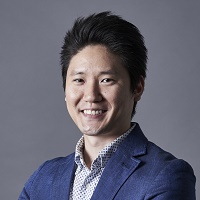
ANA AVATAR Co-Director, ANA Holdings Inc.
Kevin is passionate about improving the world through innovative business models. Together with his colleague, Akira Fukabori, Kevin has played a central role in the launch of multiple initiatives within ANA including their cause-related Blue Wing program and the airline's WonderFLY crowdfunding platform. Kevin is also a prize developer behind the ANA AVATAR XPRIZE concept which won top honors at the XPRIZE Visioneers 2016 Summit. After graduating with Summa Cum Laude honors from the University of Washington with a degree in Aeronautics & Astronautics, Kevin worked as an aerodynamics engineer on the 787 program in the US before relocating to Japan. He now works in ANA's newly established Digital Design Lab where he is in charge of rapidly prototyping new business and service concepts that he hopes will impact all 7.5 billion people on earth.
|
Hironori Kasahara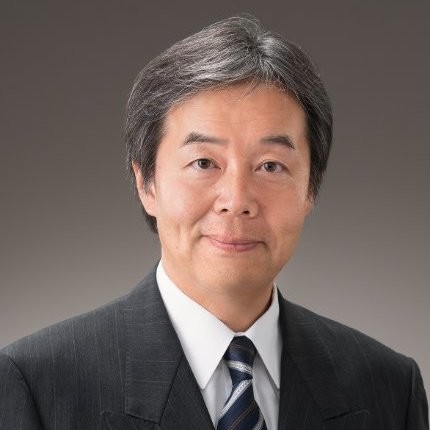
President, IEEE Computer Society; Professor of Computer Science and Engineering, Waseda University
Hironori Kasahara is an IEEE Computer Society President 2018 and a professor in the Department of Computer Science and Engineering at Waseda University. He is an IEEE Fellow, an IPSJ Fellow, a Golden Core Member of the IEEE Computer Society, a professional member of the IEEE Eta Kappa Nu, a member of the Engineering Academy of Japan and the Science Council of Japan. He received a PhD in 1985 from Waseda University, Tokyo, joined its faculty in 1986, and has been a professor of computer science since 1997 and a director of the Advanced Multicore Research Institute since 2004. He was a visiting scholar at University of California, Berkeley, and the University of Illinois at Urbana–Champaign’s Center for Supercomputing R&D.
He has served as a chair or member of 250 society and government committees, including a member of the CS Board of Governors and Executive Committee; chair of CS Planning Committee, Constitution & Bylaws Committee, Multicore STC and CS Japan chapter; associate editor of IEEE Transactions on Computers; vice PC chair of the 1996 ENIAC 50th Anniversary International Conference on Supercomputing; general chair of LCPC; PC member of SC, PACT, and ASPLOS; board member of IEEE Tokyo section; and member of the Earth Simulator and K supercomputer committees. Kasahara received the CS Golden Core Member Award, IFAC World Congress Young Author Prize, Sakai Special Research Award, and the Japanese Minister’s Science and Technology Prize. He led Japanese national projects on parallelizing compilers and embedded multicores, and has presented 215 papers, 155 invited talks, and 40 international patents. His research has appeared in 557 newspaper and Web articles.
|
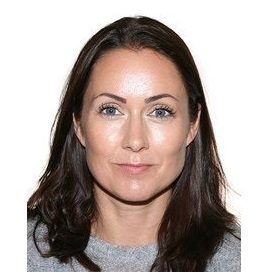 Anja Kaspersen Anja Kaspersen
Director, United Nations Office for Disarmament Affairs
Former positions include a career with the International Committee of the Red Cross (ICRC), the Norwegian Government and the UN (peacekeeping), research and academia, serving in different capacities in the private sector and for various multilateral organizations in the field and at headquarters. Since 2014, with the World Economic Forum, spearheading the Forum’s work on geopolitics and international security and how to catalyse responses to global, regional and industry challenges. Has published widely on geopolitics, international security affairs and global governance issues. Regular commentator and lecturer. |
 Matt Keller
Matt Keller
Senior Director Civil Society, XPRIZE FoundationMatt Keller is Senior Director of the $15 million Global Learning XPRIZE. He is leading an effort that challenges teams from around the world to create innovative technologies that will bring children -- on their own and with each other -- from non-literacy to literacy in 18 months in places where quality learning environments are difficult to access. Previously, as Vice-President of One Laptop per Child, Keller led OLPC’s ground-breaking literacy project in remote Ethiopia testing the theory that children from non-literate communities could teach themselves to read using tablets filled with off-the-shelf applications. In his role at OLPC, Keller also worked in scores of countries in Central and South Asia and across the African continent to bring connected laptops filled with innovative learning content to children in those regions. Keller has worked as a senior program officer with the United Nations World Food Programme serving in Rome, Italy, where he worked both as a lawyer and as a key advocate in raising global awareness around the issue of child hunger, working with governments, the private sector and citizens from dozens of countries around the world. He has served as Legislative Director for Common Cause – the pre-eminent citizens lobby in the United States -- where he led the organization’s efforts in Washington, DC to enact the Bipartisan Campaign Reform Act of 2002. Mr. Keller has also served as a legislative aide in the United States Senate, as a lawyer working on behalf of migrant farmworkers in the Southwest United States, and as a Jesuit Volunteer in Portland, Maine. |
 Stephen Kelly
Stephen Kelly
CEO, Sage
With over 30 years’ leadership experience in high growth businesses (ranging from start-ups to multi-nationals), Stephen has been CEO of three public companies in California and Europe.
Stephen was appointed Chief Executive at The Sage Group plc in November 2014. Sage is the global market leader of integrated accounting, payroll & payments systems to Small & Medium Businesses, championing the cause of the world’s entrepreneurs.
Prior to becoming the Chief Executive at Sage, Stephen served as the Chief Operating Officer to the UK Government, responsible for improving the way in which it operated, leading the Efficiency and Reform agenda including Digital, Commercial, IT and SME strategies across UK Government.
Stephen is passionate about supporting entrepreneurs and promoting their role in driving economic growth, job creation and wider prosperity.
You can follow Stephen on Twitter at @SKellyCEO
|
Łukasz Kidziński 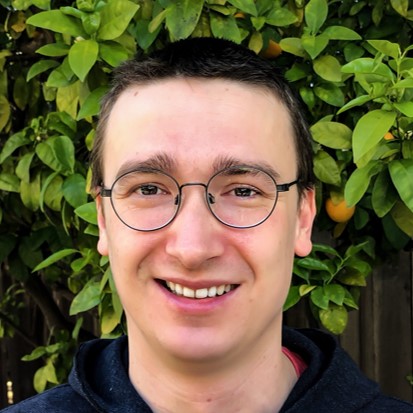
Researcher, the Mobilize Center at Stanford University
Łukasz Kidziński is a researcher in the Mobilize Center at Stanford University, working at the intersection of computer science, statistics and biomechanics. He is a co-founder of AI for healthcare group at Stanford and a co-founder deepart.io, an artificial intelligence platform for creating artistic images. His main work focuses on designing, prototyping and deploying scalable pre-diagnostic technologies for healthcare using modern computational tools.
|
|---|
Robert Kirkpatrick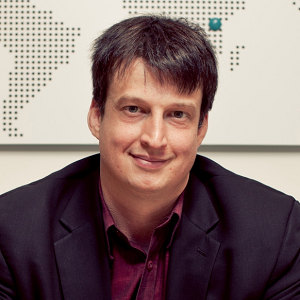
Director, UN Global Pulse
Robert Kirkpatrick is Director of Global Pulse, an innovation initiative of the United Nations Secretary-General driving a big data revolution for global development and resilience (www.unglobalpulse.org). Global Pulse's network of innovation Labs in New York, Uganda and Indonesia, allow UN System partners to discover and mainstream applications of big data and real-time analytics for humanitarian action and sustainable development. Global Pulse's advocacy agenda focuses on public-private "data philanthropy" partnerships, and data privacy & policy innovation to enable the harnessing of big data as a public good.
Prior to joining the United Nations, Kirkpatrick co-founded and led software development for two pioneering private-sector humanitarian technology teams, first at Groove Networks, and later as Lead Architect for Microsoft Humanitarian Systems. From 2007-2009 he served as CTO of the non-profit InSTEDD.
Mr. Kirkpatrick was a member of the UN Secretary-General's Independent Expert Advisory Group on a Data Revolution for Sustainable Development (2014), and currently sits on InSTEDD's Board of Directors, and the World Economic Forum's Global Agenda Council on Data-Driven Development. |
|---|
Ramesh Krishnamurthy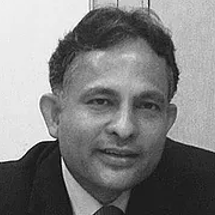
Senior Advisor, Department of Information, Evidence and Research, World Health Organization (WHO)
Dr. Krishnamurthy serves as a senior technical officer and the focal point for eHealth standardization and interoperability efforts at the World Health Organization in Geneva, Switzerland. He has extensive experience in designing, implementing, coordinating, and managing national and subnational eHealth systems and services, including health information systems, emergency operations centers, and public health surveillance information systems. Dr. Krishnamurthy has also assisted numerous countries in all of the six WHO Regions in their development and implementation of national and sub-national eHealth strategies, standardization and interoperability of eHealth systems and services, and utilization of strategic information for evidence-based public health decision-making. Previously Dr. Krishnamurthy served as Senior Informatics Advisor at the United States Centers for Disease Control and Prevention (CDC) in Atlanta. He holds many prestigious honors and awards. |
|---|
Bernhard Kowatsch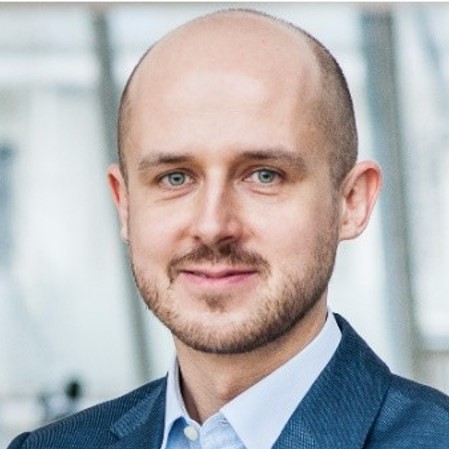
Head of Innovation Accelerator, WFP
Bernhard Kowatsch is Head of the Innovation Accelerator at the United Nations World Food Programme (WFP). The WFP Innovation Accelerator identifies, nurtures and scales disruptive startups and entrepreneurs that accelerate progress towards zero hunger. Innovations include fintech (e.g. blockchain), agri-tech, UAVs, mobile technology and Artificial Intelligence and working with the private sector.
http://innovation.wfp.org/innovation-accelerator
Previously, Bernhard co-founded the ShareTheMeal app, built up WFP's Business Innovation team and worked as Project Leader at the Boston Consulting Group (BCG) for global tech and industrial goods companies.
|
|---|
David Li
Founder, Shenzhen Open Innovation Lab (SZOIL)
David Li has been contributing to open source software since 1990. He is member of Free Software Foundation, committer to Apache projects and board director of ObjectWeb. In 2010, he co-founded XinCheJian, the first hackerspace in China to promote hacker/maker culture and open source hardware. In 2011, he co-founded Hacked Matter, a research hub on maker movement and open innovation. In 2015, he co-founded Maker Collider, a platform to develop next generation IoT from Maker community. He is also the executive director of Shenzhen Open Innovation Lab which facilitate the collaboration between global smart hardware entrepreneurs and Shenzhen Open Innovation ecosystem.
|
Shinjini Kundu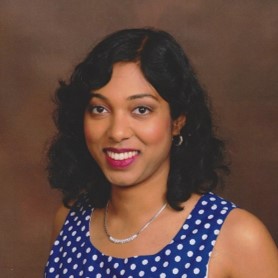
Research Fellow, University of Pittsburgh Medical Center
Dr. Shinjini Kundu is a medical scientist at the University of Pittsburgh Medical Center (UPMC). She holds an MD degree from UPMC as well as a PhD in biomedical engineering from Carnegie-Mellon University. Earlier, she obtained B.S. and M.S. in electrical engineering from Stanford University. In her doctoral dissertation, Dr. Kundu developed artificial intelligence techniques to detect latent signs of disease from medical images that are invisible to the human eye. Her mathematical framework utilizing machine learning was shown to predict knee osteoarthritis in healthy individuals 3 years before the onset of symptoms, among many other exciting applications. Shinjini has given a TEDx talk and was named a Global Shaper by the World Economic Forum. At 27, she is currently one of the youngest MD-PhD scientists. |
Jacques Ludik 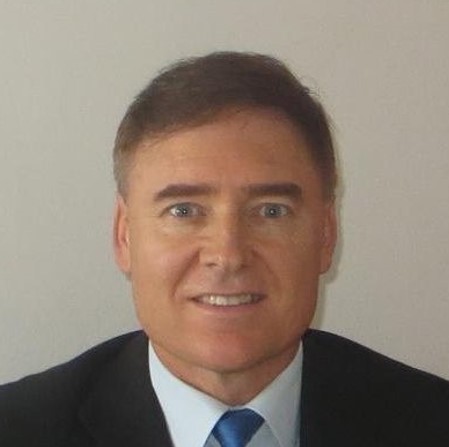
Founder & CEO, Cortex Logic; Founder & President, Machine Intelligence Institute of Africa
Dr Jacques Ludik is a smart technology entrepreneur, AI expert, investor & ecosystem builder and currently Founder & President of Machine Intelligence Institute of Africa (MIIA), Founder & CEO of Cortex Logic, Founder & CTO of Bennit AI, Founder of SynerG, The Talent Index, & aiTRADE Systems, and investor in The Student Hub (ERAOnline). He holds a Ph.D. in Computer Science (AI) with many publications and has 25+ years' experience in Machine / Artificial Intelligence (AI) & Data Science and its applications. MIIA is an innovative community & accelerator for Machine Intelligence & Data Science Research & Applications to help transform Africa, whereas Cortex Logic is an AI company that provides an AI Engine for Business, advances AI and builds end-to-end AI solutions for a range of industries. Bennit A.I. is an intelligent virtual production assistant/advisor for manufacturing.
Jacques was Vice President of Data Science & Chief Data Officer at JUMO, a company that provides the next generation mobile money marketplace for emerging markets. Jacques has also founded an Analytics/AI software company, CSense Systems where he was Executive Director (Joint MD, CTO, & COO) for about 14 years, that provides software, services & solutions to customers world-wide in a range of industries (financial, mining, chemical, manufacturing, etc.) via an international reseller & solution partner network. The company was sold to General Electric (GE) in 2011. At GE he held various leadership roles for 4+ years including Big Data & Analytics Leader and Director of GE Intelligent Platforms.
Jacques was also Senior Lecturer & Researcher at Stellenbosch University, where dozens of his papers on AI were published in Journals and International Conferences as well as a book published by Cambridge University Press (UK). He also has a patent filed for Knowledge Fusion. Jacques holds a B.Sc (Cum Laude), Hons.B.Sc. (Cum Laude), M.Sc. (Cum Laude), and PhD degrees from Stellenbosch University. |
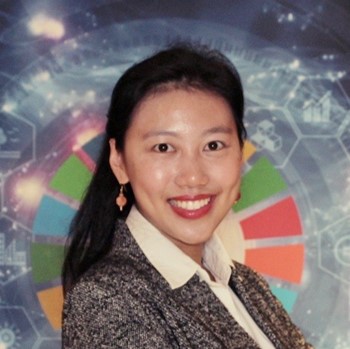 Bosen LiuFounder, Ladder Education Group
Bosen LiuFounder, Ladder Education Group
Bosen LIU is the Founder of Ladder Education Group based in China. Her organization is dedicated to bringing low-cost yet highly-advanced technology to isolated areas, serving marginalized population in terms of literacy and citizenship education. She advocates for equality in educational access and quality and she promotes the mission to reduce digital gap. Prior to establishing Ladder Education Group, she worked at UNESCO Headquarter in Paris under Division for Policies and Lifelong Learning Systems and had multiple publications in the field of ICT in Education.
|
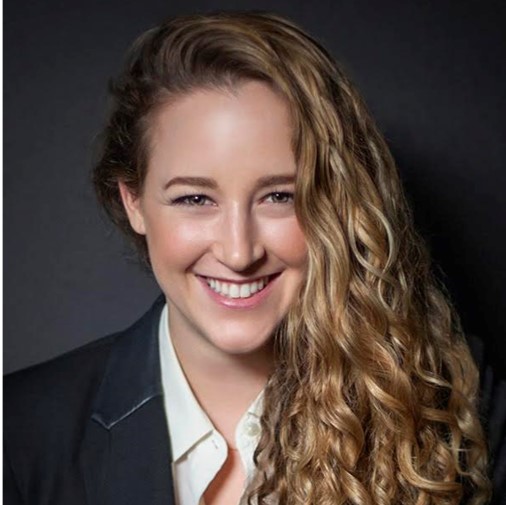 Terah LyonsExecutive Director, Partnership on AI Terah LyonsExecutive Director, Partnership on AI
Terah Lyons is the founding Executive Director of the Partnership on AI, a multistakeholder nonprofit initiative focused on advancing the benefits and addressing the challenges of machine intelligence founded by Amazon, Apple, DeepMind, Facebook, Google, IBM, Microsoft, the ACLU, OpenAI, and the MacArthur Foundation. She is a former Policy Advisor to the U.S. Chief Technology Officer in the White House Office of Science and Technology Policy (OSTP) and a Mozilla Foundation Technology Policy Fellow. In her capacity at the White House, Terah led a policy portfolio in the Obama Administration focused on machine intelligence, including AI, robotics, and intelligent transportation systems.
Prior to her work at the White House, Terah was a Fellow with the Harvard School of Engineering and Applied Sciences based in Cape Town, South Africa. She is a graduate of Harvard University. |
 Hagit Messer-Yaron
Hagit Messer-Yaron
Member of Working Group on IoT, World Commission on the Ethics of Scientific Knowledge and Technology of UNESCO (COMEST); Professor of Electrical Engineering, Tel Aviv University
HAGIT MESSER is The Kranzberg Chair Professor in Signal Processing in the school of Electrical Engineering. On 2000-3 she has been on leave from TAU, serving as the
Chief Scientist at the Ministry of Science. After returning to TAU she was the head of the Porter school of environmental studies (2004-6), and the
Vice President for Research and Development 2006-8. Then, she has been the
President of the Open University, and from Oct. 2013 till January 2016 she has served as the Vice Chair of the Council of Higher Education, Israel. On 2016 she has also become a co-founder of ClimaCell.
Hagit Messer is an active researcher in the field of Statistical Signal Processing, with applications to environmental monitoring. She is also interested in various aspects of higher-education and science policy, including: ethics, science-society interplay, and commercialization of academic research. She currently serves as a member of COMEST, The World Commission on the Ethics of Scientific Knowledge and Technology, and of the Executive Committee of the IEEE Global Initiative on Autonomous and Intelligent Systems. |
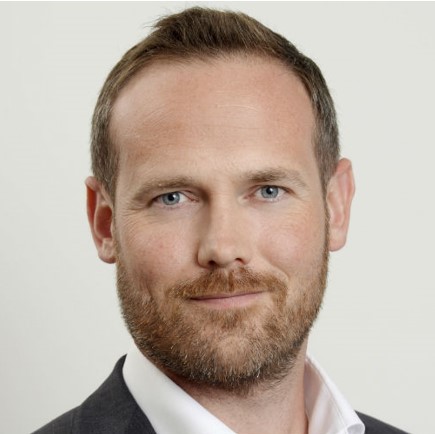 Rob McCargow Rob McCargow
AI Programme Leader, PwC
Rob works with partners across academia, government, technology vendors, start-ups, and other key stakeholders, in order to drive innovation within the Firm and develop new services for clients. He is an evangelist for responsible technology and promotes awareness of the growing ethical agenda relating to AI. He is an advisory board member of the UK's All-Party Parliamentary Group on AI, an adviser to The IEEE Global Initiative for Ethical Considerations in AI and Autonomous Systems, a TEDx speaker, and a Fellow of The RSA. Rob is particularly focused upon the issues and policies relating to the impact of automation on the workforce, the future skills agenda, and ensuring that the benefits to be delivered by AI are equitably spread across society. His Twitter handle is @robmccargow. |
|---|
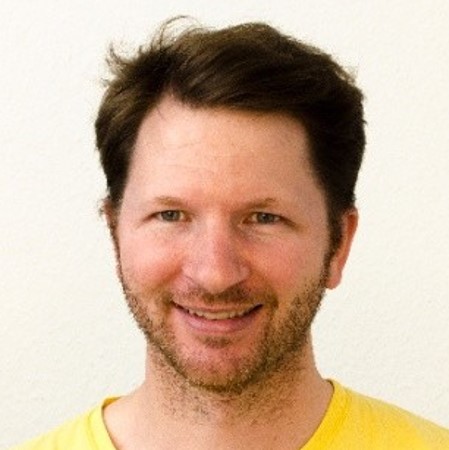 Trent McConaghy
Trent McConaghy
Founder, Ocean Protocol and Founder & CTO, BigchainDB
Trent McConaghy is working on democratizing data via Ocean decentralized data economy for artificial intelligence, BigchainDB decentralized database, and advising Estonia E-residency. These are building blocks towards his long-term goal - to help ensure that humanity has a role in an increasingly autonomous world. He started his career by doing AI research for national defense in the 1990s, while still an undergraduate. Then, in his first startup (ADA), he explored the relation between human creativity and AI-based machine creativity. Synopsys acquired ADA in 2004. He extended that work during his PhD from 2004-2008, and found a way to reconcile machine creativity with existing engineering knowledge. In his second startup (Solido), he leveraged AI to help drive Moore's Law, which was under threat due to high manufacturing variations. Now, Solido software is used for most modern chip designs. Siemens acquired Solido in 2017. His third and current startup is all about democratizing data for the planet. He has hatched ascribe (2013), BigchainDB (2015) and Ocean (2017). |
|---|
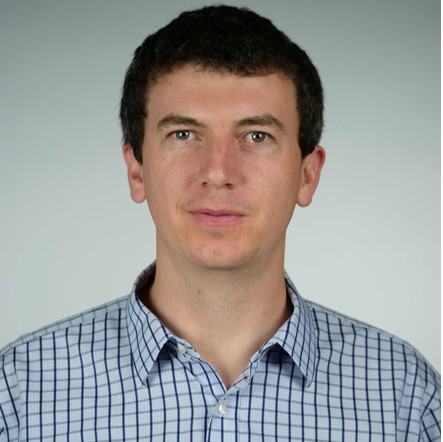 Sean McGregor
Sean McGregor
Technical Staff, Syntiant Corp; Technical Lead of IBM Watson AI Prize, XPRIZE
Sean McGregor is the technical lead for the IBM Watson AI XPRIZE and member of technical staff at Syntiant. He defended his PhD in machine learning, visualization, and optimization in June with an application of reinforcement learning to wildfire suppression policy. He has additionally worked with NASA to model solar flares and developed several open source projects. |
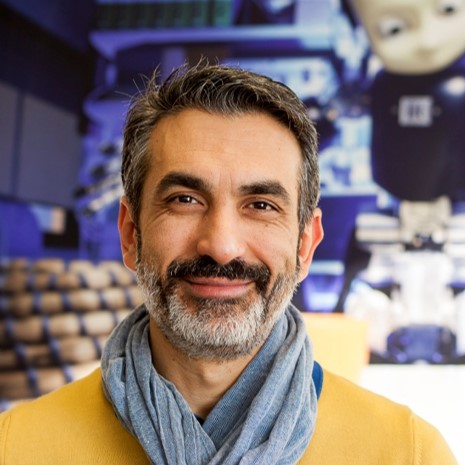 Giorgio Metta
Giorgio Metta
Vice Scientific Director and Director of the iCub Facility Department, Istituto Italiano di Tecnologia (IIT)
Giorgio Metta is Vice Scientific Director at the Istituto Italiano di Tecnologia (IIT) and Director of the iCub Facility Department at the same institute. He coordinates the development of the iCub robotic project. He holds an MSc cum laude (1994) and PhD (2000) in electronic engineering, both from the University of Genoa. From 2001 to 2002, he was postdoctoral associate at the MIT AI-Lab. He was previously with the University of Genoa and since 2012 Professor of Cognitive Robotics at the University of Plymouth (UK). He is also deputy director of IIT delegate to the training of young researchers. He is member of the board of directors of euRobotics aisbl, the European reference organization for robotics research. Giorgio Metta research activities are in the fields of biologically motivated and humanoid robotics and, in particular, in developing humanoid robots that can adapt and learn from experience. Giorgio Metta is author of more than 250 scientific publications. He has been working as principal investigator and research scientist in about a dozen international as well as national funded projects. |
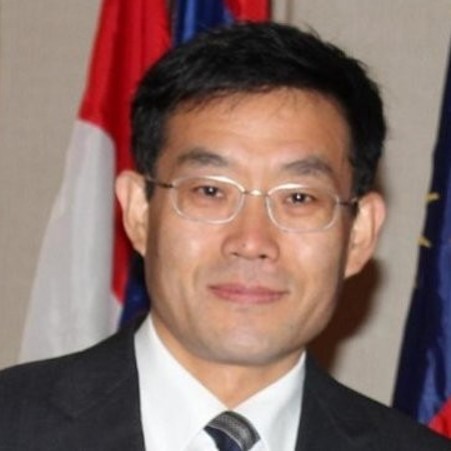 Fengchun Miao Fengchun Miao
Chief of Unit for ICT in Education, UNESCO
Dr. Fengchun Miao is the Chief of the Unit for ICT in Education at UNESCO, Education Sector, Headquarters in Paris. He is leading UNESCO Education Sector's programmes in areas of ICT in education policy planning and development, ICT competency standards for teachers and students (ICT CFT), Open Educational Resources (OER), mobile learning and AI for education, and future e-schools. He is also in charge of UNESCO Prize for the Use of ICTs in Education. Under her competence, he is coordinating the cooperation with other UN-agencies in the field of ICT for SDGs. Before joining UNESCO, Dr. Miao was the Director-General of the National Research Centre for Computer Education, Ministry of Education, China. In that capacity, he was responsible for the development of ICT in education policy and ICT curriculum standards for students and managing the National Association for the Use of ICT in K-12 Schools of China. Highlights of his achievements during that period include National Guidelines for Curriculum Reform for China K-12 Schools, National ICT in Education Master Plan 2005-2010, ICT Curriculum Standards for Students (K-12), China Educational Technology Standard for Teachers, and five series of ICT textbooks for students. |
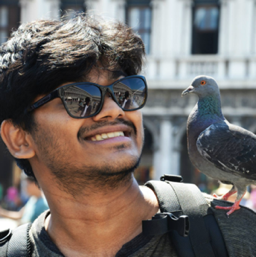 Sharada Mohanty Sharada Mohanty
PhD Student, Digital Epidemiology Lab, EPFL; Co-Founder, CrowdAI
Sharada Mohanty is a PhD Student in the Laboratory of Marcel Salathé at EPFL. His research focuses on different aspects of AI in Health, like teaching simulated skeletons how to walk, estimating nutritional intake of populations, diagnosing diseases using smart phones.
He is also the Co-Founder of CrowdAI, an opensource platform for Machine Learning Challenges for Open Science with Open Data, where they bring together a large community of AI Enthusiasts to help solve challenging problems in Science using Artificial Intelligence. |
 Aleksandra (Saška) Mojsilović
Aleksandra (Saška) Mojsilović
Head of AI Foundations, IBM Research; Co-Director, IBM Science for Social Good
Aleksandra (Saška) Mojsilovic is a scientist, Head of AI Foundations at IBM Research, Co-Director of IBM Science for Social Good and IBM Fellow. She is a Fellow of the IEEE and a member of IBM Academy of Technology. Saška received the Ph.D. degree in electrical engineering from the University of Belgrade, Belgrade, Serbia in 1997. She was a Member of Technical Staff at the Bell Laboratories, Murray Hill, New Jersey (1998-2000), and then joined IBM Research. Saška is the author of over 100 publications and holds 16 patents. Her work has been recognized with several awards including IEEE Signal Processing Society Young Author Best Paper Award, INFORMS Wagner Prize, IBM Extraordinary Accomplishment Award, and IBM Gerstner Prize. Saška also serves on the board of directors for Neighborhood Trust Financial Partners, which provides financial literacy and economic empowerment training to low-income individuals. |
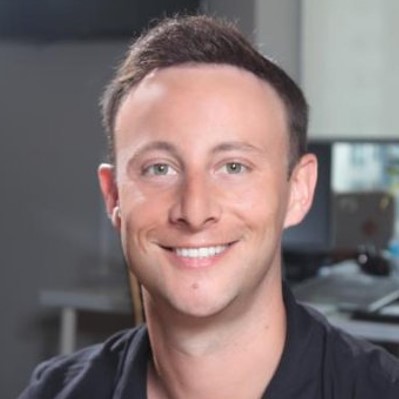 Sam Molyneux Sam Molyneux
GM, Chan Zuckerberg Initiative
Sam is a Canadian scientist and entrepreneur who has focused his work on the problem of how scientific information is organized in the modern world. Inspired by the challenges he faced as a cancer genomics researcher at the University of Toronto, Sam co-founded Meta, an artificial intelligence company that is transforming how scientific knowledge is experienced and consumed. In 2017 Meta joined the Chan Zuckerberg Initiative to scale up and make its technologies and tools freely available for researchers around the world.
Sam has received several honours for his work in both scientific research and in business, including the Banting & Best Doctoral Fellowship, and the 2016 Martin Walmsley Fellowship Award. Meta was recognized as an inaugural BetaKit Next Selectee, Top 10 Innovations of 2014 by The Scientist Magazine, and has been written about in MIT Technology Review, TechCrunch, Fortune, ReCode, Engadget, Wired, Bloomberg, CNBC, CNN, NewsWeek, and Communications of the ACM among others. Meta's acquisition by the Chan Zuckerberg Initiative was covered in more than 160 news and magazine outlets. Sam was named #20 on Fast Company Magazine's 100 Most Creative People in Business in 2017.
Sam’s research has been published in Nature Genetics, Nature Cell Biology, PNAS, and the Journal of Clinical Investigation. He is a frequent speaker on the future of scientific information, STEM entrepreneurship, and the impact of AI on innovation. |
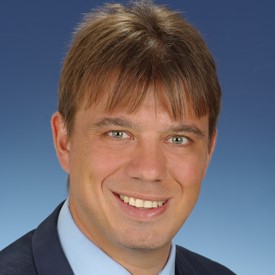 Jochen MoningerHead of Innovation, Welthungerhilfe
Jochen MoningerHead of Innovation, Welthungerhilfe
Jochen Moninger is Head of the Innovation Department at Welthungerhilfe. He was working in several Arabic and African countries from 2005 to 2015. Since 2016 he has launched the Innovation department in Welthungerhilfe. Moninger is a specialist on humanitarian assistance and development cooperation. He holds a degree in Human Geography, Economics and Political Science. He has collected his extensive hand-on experience during several years of field work in different positions: from village based assignments without any kind of modern infrastructure to managerial positions with responsibilities for programs, staff and budgets. His innovation drive he now puts under global perspectives developing new business models in the field of inclusive business and ICT4D. He has not only launched several initatives in Africa and Asia but also but also functioned as an adviser for the first development phase of them. His main focus is the combination of sustainable social impact and Zero Hunger. |
Clara Palau Montava 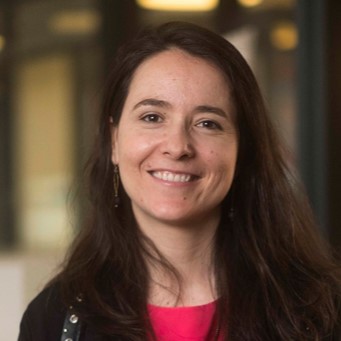
Technology Team Lead, UNICEF
Clara Palau leads the technology team at UNICEF's Office of Innovation, a group focused on using data science and artificial intelligence to support humanitarian and development programmes for the most vulnerable children, by enabling partnerships through private sector, academia and public organisations. Before joining UNICEF, she gained international experience as a manager and as a researcher in different industries and technology areas, working for Orange, CERN and Indra. She holds a MsC in telecommunication engineering and a master in non-profit organisation management. |
|---|
Rebeca Moreno Jiménez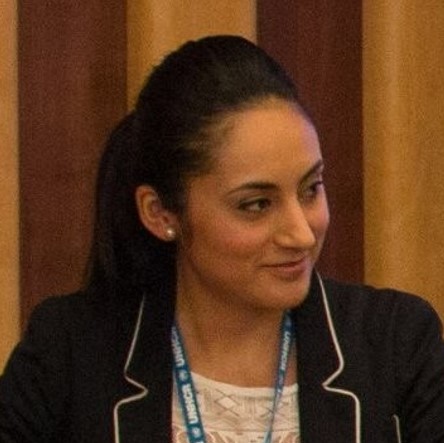
Data Scientist, UNHCR
Rebeca MORENO JIMENEZ, is currently working as the main Data Scientist of the UN Refugee Agency (UNHCR) Innovation Service. She has supported several UNHCR field operations in Latin America, Europe, East Africa and MENA, focusing on the potential of data science, artificial intelligence and big data uses for enhanced protection and decision-making. Additionally, she collaborated with WFP Emergency Operations by conducting research on the funding shortfall on WFP Support to Syrian Refugees in Jordan. In the international development sector, Rebeca worked for 5 years at the World Bank Mexico field office in the areas of open data, communications and access to information/data protection policy. She is the founder of "Oportunidades para Internacionalistas". Oportunidades started as a Facebook group derived from the 2009 crisis in order to help Latin American youth find professional and educational opportunities. Today is a regional network with more than 34,000 members. She is also the co-founder of @UrbanWatchers, a startup based in NYC. For her entrepreneurial achievements, the World Economic Forum was recognized in 2012 as part of its Global Shapers community. Rebeca is a Mexican national and holds a B.A. in International Relations and an MPP from ITESM Campus Monterrey, a certificate in Foreign Policy by American University and an Executive Education diploma from the Harvard Kennedy School of Government. She is a former Fulbright scholar of the School of International and Public Affairs (SIPA) at Columbia University, where she graduated with an MPA, specializing in the management of technology policy and humanitarian affairs. |
|---|
Akihiro Nakao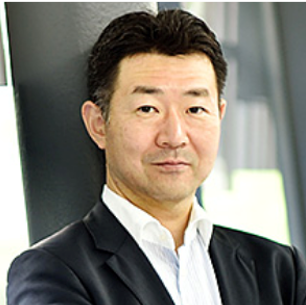
Professor in Applied Computer Science, University of Tokyo
Professor, Dr. Akihiro NAKAO received his BS in Physics and ME in Information Engineering from the University of Tokyo. He worked at IBM Yamato Laboratory, Tokyo Research Laboratory, and IBM Texas Austin. He received his MS and PhD in Computer Science from Princeton University. Since 2005, he has been an Associate Professor and is now a Professor in Applied Computer Science at the Interfaculty Initiative in Information (III) Studies, Graduate School of Interdisciplinary Information Studies, University of Tokyo. He has been appointed as Chairperson of Department in III. He has also been appointed as Chairman of the 5G Mobile Network Promotion Forum (5GMF) Network Architecture Committee by Japanese government. |
|---|
Ezinne Nwankwo 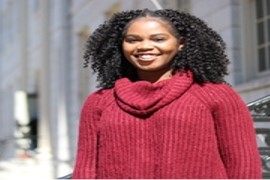
Visiting Scholar, Leverhulme Centre for the Future of Intelligence at University of Cambridge
Ezinne Nwankwo is currently the recipient of the Harvard-Cambridge Fellowship that funds a year of research and scholarship at the University of Cambridge. She holds a B.A. from Harvard University in Applied Mathematics with a focus on Statistics. At Harvard she has been vice president of the Harvard Black Students Association and after serving as a volunteer, tutor, and mentor at the Phillips Brooks House Association she served as the Assessment and Evaluations Chair, a role which enabled her to design a common online volunteer application and bring the discipline of statistical analysis to many of PBHA’s diverse public service programs to evaluate their effectiveness. She was also a data analytics intern at the City of Boston’s Department of Innovation & Technology, a job that saw her using many of the skills she developed in an advanced math class project she did analyzing the employment database of the City of Austin, Texas.
Ezinne is a visiting researcher at the Center for the Future of Intelligence at Cambridge University where she will be researching the policy impacts of AI and methods of evaluation for bias in these algorithms. |
|---|
Robert Opp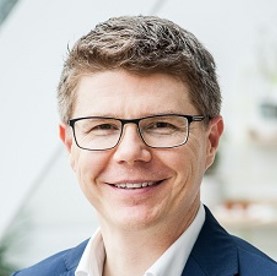
Director of Innovation and Change Management Division, WFP
Robert currently leads the Innovation & Change Management Division within the United Nations World Food Programme, the world’s largest provider of humanitarian food assistance with a budget of US$5 billion per year and 15,000 staff members in over 80 countries. In this role, he works to harness the power of innovations to help achieve the Sustainable Development Goals, including ending hunger by 2030. Under his leadership, WFP has established an in-house ‘Zero Hunger’ Innovation Accelerator with an operating budget of over $5 million per year and created the award-winning crowdfunding smartphone app “ShareTheMeal” that has raised over $10 million for children in need to date.
Robert also leads efforts to make the organisation more effective by supporting the implementation of key change initiatives and reforms across WFP. He serves as a member of WFP’s Executive Management Group, the highest level formal decision-making body in the organisation.
Robert began his career at Canada’s International Development Research Centre managing projects focused on peacebuilding in post-conflict countries. He served in WFP in the organisation’s Angola operation, managing emergency food aid assistance programmes within a $260 million operation that reached over 1 million internally displaced persons affected by civil war; and as Chief of Policy and Administration within the Executive Director’s office in Rome. He was also a management consultant with The Boston Consulting Group (BCG) based in Singapore where he served a wide range of private sector companies throughout Asia and the Middle East.
Robert holds an M.A. in International Affairs from the Norman Paterson School of International Affairs at Carleton University and a B.A. in History from the University of Alberta, as well as a Diploma in Humanitarian Assistance from the Université de Genève.
|
Eleonore Pauwels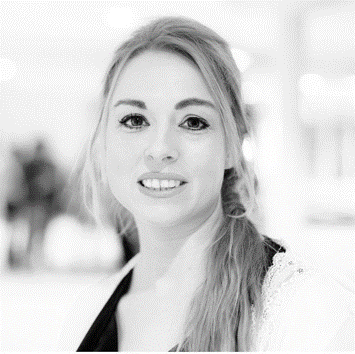
Research Fellow on Emerging Cyber-Technologies, United Nations University (UNU)
Eleonore Pauwels is the Research Fellow on Emerging Cybertechnologies within the NY Office of the United Nations University (UNU). Prior to UNU, Pauwels held the position of Director of the Anticipatory Intelligence (AI) Lab with the Science and Technology Innovation Program at the Woodrow Wilson International Center for Scholars. She is a former official of the European Commission’s Directorate on Science, Economy and Society.
Pauwels is a writer and international science policy expert, who specializes in the governance and democratization of converging technologies. Pauwels’ research analyzes and compares how emerging technologies, such as artificial intelligence, blockchain and genome-editing, raise new opportunities and challenges for health, security, economics and governance in different geo-political contexts. She examines the promises and perils that will likely arise with the development of AI civil and military technologies, the Internet of Bodies and Living Things, and the convergence of cyber- and bio-security. Pauwels is an adviser on the AI Initiative at Harvard Kennedy School, the IEEE Global Initiative on Ethics of Autonomous and Intelligent Systems, as well as an expert for the World Economic Forum.
Pauwels regularly testifies before U.S., European and international authorities including the U.S. Department of State, the U.S. National Academy of Sciences, the U.S. National Institutes of Health, the U.S. National Intelligence Council, the European Commission, the Organization for Economic Co-operation and Development, and the United Nations. Pauwels is also well-versed in communicating complex and novel scientific developments for lay audiences (her TEDxCERN on CRISPR and AI Media Interview). Bilingual in French and English, she frequently writes for Nature, The New York Times, The Guardian, Scientific American, Le Monde, Slate and The World Economic Forum.
|
Bill Peduto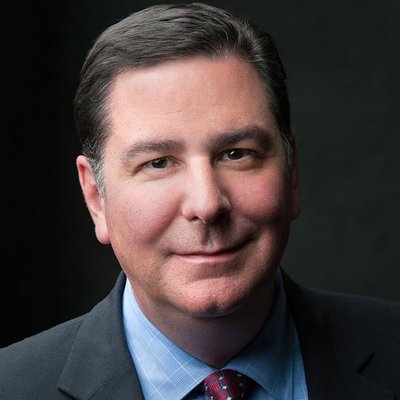
Mayor, City of Pittsburgh, USA
William Peduto has been Mayor of the City of Pittsburgh since 2014. Since taking office, Mayor Peduto has lead a collaborative effort to make Pittsburgh a leading 21st Century city. Under Peduto's leadership the City of Pittsburgh has played an active role in National League of Cities and U.S. Conference of Mayors initiatives and joined the Rockefeller Foundation's 100 Resilient Cities network, an effort to improve city resilience in the face of climate change, globalization and urbanization trends. In 2015 Mayor Peduto signed a unique agreement with the U.S. Department of Energy to make the city a world leader in district energy production and Pittsburgh joined the UN's Compact of Mayors, a global coalition of climate leaders committed to local action and global impact. Recently Mayor Peduto joined with mayors across the world to reaffirm Pittsburgh's commitment to the Paris Agreement and efforts to combat climate change. Mayor Peduto is a founding member of the MetroLab Network, a national alliance of cities and universities committed to providing analytically-based solutions to improve urban infrastructure, services and other public sector priorities. The Peduto administration recently unveiled the first ever ONEPGH Resilience Strategy based on the core p4 principles (People, Planet, Place & Performance), a model for urban growth and development that is innovative, inclusive and sustainable. Mayor Peduto is working hard to ensure that everyone benefits from Pittsburgh's transformation and growth because, "If it's not for all, it's not for us."
|
Jonnie Penn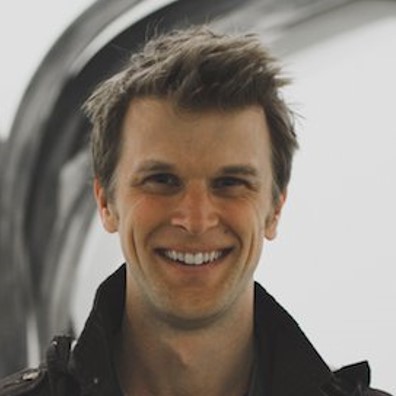
Google Technology Policy Fellow; Pembroke College at the University of Cambridge
Jonnie Penn is a New York Times Bestselling author, a Google Technology Policy Fellow at the European Youth Forum, and a Rausing, Williamson and Lipton doctoral scholar studying artificial intelligence at the University of Cambridge. He is currently a visiting scholar in the STS department at MIT and a BKMLA Assembly Fellow at the MIT Media Lab and Harvard's Berkman Kline Centre for Society and Internet. He is the co-founder of The Buried Life, a popular youth movement and TV series syndicated in 70+ countries that asks, “What do you want to do before you die?” Jonnie volunteers on the IEEE’s Working Group on a Standard for Child and Student Data Governance (IEEE P7004). He hold degrees from the University of Cambridge and McGill University.
|
Adam Perold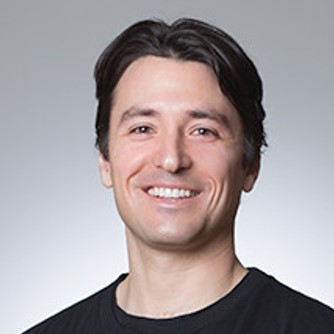
Co-Founder, President and CEO, Element Inc
Adam Perold is the President and CEO of Element Inc, a company he co-founded with AI pioneer Yann LeCun, to deliver digital identity at large scale to help build more efficient and inclusive societies. Mr. Perold received his BS in Mechanical Engineering from Stanford University, and his MBA from Harvard Business School.
|
|---|
Priya Prakash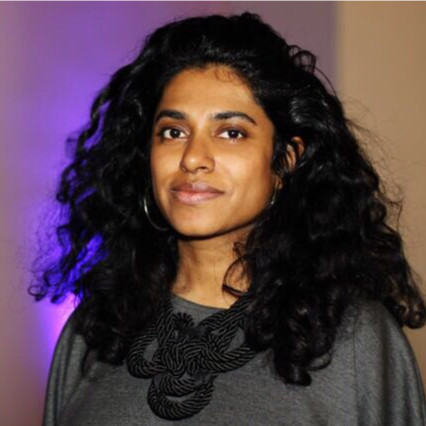
Founder and CEO, Design for Social Change (d4Sc)
Priya Prakash is designer-founder of London based award-winning
D4SC - Design for Social Change Ltd -The applied urban innovation studio develops collaborative products and services combining human and machine intelligence to co-create smarter cities with people.
Prakash is a RSA fellow featured in
IBM's People for Smarter Cities, FT, Sunday Times, BBC, Wired, Guardian and the Queen's 2017 Honours list.
Previously, Priya was Head of Mobile Phone User Experience at Nokia where she led the global design team to launch affordable smart phones - Nokia Asha in 144 countries. At BBC, she was lead-designer and co-inventor of iPlayer with joint patents. |
|---|
Huw Price
Professor of Philosophy, University of Cambridge
Huw Price is Bertrand Russell Professor of Philosophy and a Fellow of Trinity College at the University of Cambridge. He is Academic Director of the Leverhulme Centre for the Future of Intelligence, and was founding Academic Director of the Centre for the Study of Existential Risk, which he established in 2012 with Martin Rees and Jaan Tallinn. Before moving to Cambridge he was ARC Federation Fellow and Challis Professor of Philosophy at the University of Sydney, where from 2002—2012 he was founding Director of the Centre for Time.
His publications include Facts and the Function of Truth (Blackwell, 1988; 2nd. edn. OUP, forthcoming), Time's Arrow and Archimedes' Point (OUP, 1996), Naturalism Without Mirrors (OUP, 2011) and a range of articles in journals such as Nature, Science, Philosophical Review, Journal of Philosophy, Mind, and British Journal for the Philosophy of Science. His René Descartes Lectures(Tilburg, 2008) were published as Expressivism, Pragmatism and Representationalism (CUP, 2013), with commentary essays by Simon Blackburn, Robert Brandom, Paul Horwich and Michael Williams. He is also co-editor of three collections published by Oxford University Press: Causation, Physics, and the Constitution of Reality (2007, co-edited with Richard Corry); Making a Difference (2017, co-edited with Helen Beebee and Chris Hitchcock); and The Practical Turn (2017, co-edited with Cheryl Misak).
He is a Fellow of the British Academy, a Fellow and former Member of Council of the Australian Academy of the Humanities, and a Past President of the Australasian Association of Philosophy. He was consulting editor for the Stanford Encyclopedia of Philosophyfrom 1995–2006, and is an associate editor of The Australasian Journal of Philosophy and a member of the editorial boards of Contemporary Pragmatism, Logic and Philosophy of Science, the Routledge International Library of Philosophy, and the European Journal for Philosophy of Science. |
|---|
Sameer Pujari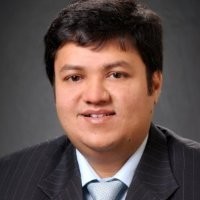
“Be Healthy, Be Mobile” Project Manager, World Health Organization (WHO)
Sameer Pujari has an earned Fellowship in Public Health Informatics from the Centers for Disease Control. He has graduate degrees in Business Studies & Software Engineering and an MBA with Gold Medal in Systems Management. He also has training in information security and program management.Sameer joined WHO headquarters in Geneva in Feb 2008. With WHO, he has worked extensively on Digital Health including mHealth, Big Data , AI, he has provided in country support in over 40 countries in AFRO, EMRO, EURO, SEARO & WPRO regions of WHO & has overlooked work in many other countries.
Since 2012 he is also co-leading the development & implementation of a joint WHO and ITU initiative on Digital Health and mHealth for Non-Communicable Diseases. The initiative has successfully scaled digital health programs in 10 countries with over millions of people using the national programs.
Before coming to WHO, Sameer worked with the Centers for Disease Control and Prevention-USA with the Global Immunization Division's, where he worked with WHO regions and countries on information management for surveillance for EPI, Malaria and various other vaccine preventable disease . He traveled extensively to AFRICA to help setup EPI information management systems for surveillance and has provided and various trainings and conducted reviews of the surveillance systems.He started his career working with WHO's National Polio Surveillance Project in India for 7 years, where he led the development and implementation of various information management systems for surveillance across the country. |
|---|
John Quinn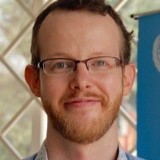
Arificial Intelligence Advisor, UN Global Pulse
John Quinn is an Artificial Intelligence Advisor at United Nations Global Pulse, working mainly on projects in Pulse Lab Kampala, Uganda. At Makerere University. He is also an Honorary Associate Professor in the Department of Computer Science and part of the Artificial Intelligence Research group. From October 2016 to October 2018 he is a visiting researcher at the School of Informatics, University of Edinburgh.
His research interests are in machine learning, data science and artificial intelligence, and particularly in the use of techniques from these fields to address information gaps and practical problems in developing countries. |
|---|
Sara Rendtorff-Smith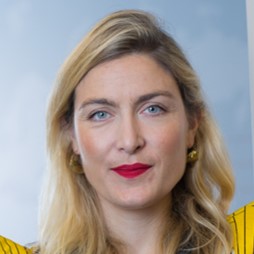
Applied Research Lead for Public Interest AI Projects, MIT
Sara Rendtorff-Smith is the Applied Research Lead for Public Interest AI Projects at MIT. Her work focuses on data driven policy and governance. She is particularly interested the role of AI in public safety, electoral integrity and public service delivery. Sara joined MIT after working for nearly ten years on political, economic and social challenges facing countries in the immediate aftermath of armed conflict. She started her career with a humanitarian NGO in Afghanistan and has since worked across the political, development and peacekeeping spheres to ensure that peacemaking is inclusive and international recovery and statebuilding efforts contribute to sustainable peace. She has led program and policy initiatives in the Central African Republic (CAR), Darfur, Democratic Republic of the Congo, Liberia, Mali and South Sudan and has contributed to drafting UN institutional guidance on civilian protection, conflict management, economic governance and support to institution building in post-conflict settings. At UN headquarters, Sara served on special planning teams for transition scenarios in Syria and the establishment of a peacekeeping operation in the CAR. Sara has demonstrated a strong commitment to policy analysis, early warning, impact assessment, and multi-stakeholder planning and coordination. Sara holds an MPA from Harvard University and an MA in International Relations from NYU. She is proficient in Danish, English, French, Spanish, Arabic and German. |
Nagla Rizk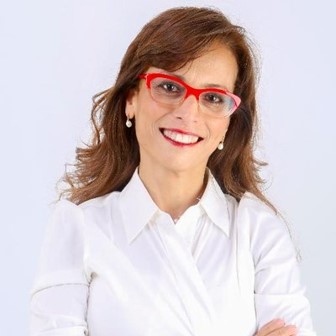
Professor of Economics,The American University in Cairo; Founding Director, Access to Knowledge for Development Center (A2K4D)
Nagla Rizk is Professor of Economics and Founding Director of the Access to Knowledge for Development Center (A2K4D) at the American University in Cairo's School of Business. Her research area is the economics of knowledge, technology and development with focus on digital platforms, entrepreneurship, innovation, intellectual property and business models in the digital economy. She is Co-Director of the Open African Innovation Research Network (Open AIR) where she leads research on alternative innovation metrics for Africa. Rizk also leads the Open Data for Development (OD4D) node for the Middle East and North Africa. She is Faculty Associate at Harvard's Berkman Klein Center for Internet and Society and Affiliated Fellow of Yale Law School's Information Society Project. She is member of the Executive Committee of the International Economic Association, Associate Member of the University of Ottawa's Centre for Law, Technology and Society and Affiliated Faculty at Harvard Law School's Copyrightx course. She wrote the National Strategy for "Free and Open Source Software in Egypt" (2014), served as member of the Ministerial Committee on Right to Information law, Egypt (Fall 2013) and is currently member of the Academy of Scientific Research and Technology's Committee on Alternative Innovation Assessment in Egypt. She taught at Columbia University, Yale Law School and the University of Toronto. |
|---|
Joaquin Rodriguez Alvarez
Research and Professor, Escola de Prevenció i Seguretat Integral (EPSI); Barcelona Coordinator, Leading Cities; Ethical Advisor, The Social Coin
Joaquín Rodríguez earned a Ph.D from the program of International Public Law at the Autonomous University of Barcelona. His specialty is the relations between society and technology, and risk analysis. He is member of Conris (Cooperation Network for Risk, Safety and Security Studies) and Founding member of Leading Cities.
He works as researcher and Professor of the School of Prevention and Integral Safety and Security of the UAB, and as coordinator of Leading Cities in Spain. He also takes part as ethical advisor for European Projects, H2020, KAII.
|
|---|
Francesca Rossi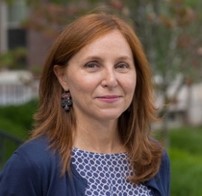
Research Scientist at IBM Research and Professor at the University of Padova
Francesca Rossi is a distinguished research scientist at the IBM T.J. Watson Research Center, and an professor of computer science at the University of Padova, Italy, currently on leave.
Her research interests focus on artificial intelligence, specifically they include constraint reasoning, preferences, multi-agent systems, computational social choice, and collective decision making. She is also interested in ethical issues in the development and behaviour of AI systems, in particular for decision support systems for group decision making. She has published over 170 scientific articles in journals and conference proceedings, and as book chapters. She has co-authored a book. She has edited 17 volumes, between conference proceedings, collections of contributions, special issues of journals, as well as the Handbook of Constraint Programming. She has more than 100 co-authors.
She is a AAAI and a EurAI fellow, and a Radcliffe fellow 2015. She has been president of IJCAI and an executive councillor of AAAI. She is Editor in Chief of JAIR and a member of the editorial board of Constraints, Artificial Intelligence, AMAI, and KAIS. She co-chairs the AAAI committee on AI and ethics and she is a member of the scientific advisory board of the Future of Life Institute and of the Leverhulme Centre for the Future of Intelligence. She is in the executive committee of the IEEE global initiative on ethical considerations on the development of autonomous and intelligent systems and she belongs to the World Economic Forum Council on AI and robotics. She is a member of the board of directors of the Partnership on AI, where she represents IBM as one of the founding partners.
|
|---|
Rafael Ruiz de Castañeda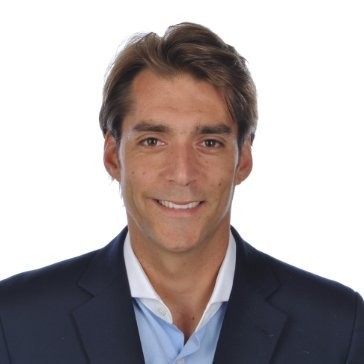
Researcher, Lecturer, and Co-lead of Precision One Health Unit, University of Geneva
Dr. Rafael Ruiz de Castañeda leads the One Health Unit of the Institute of Global Health at the Faculty of Medicine of the University of Geneva (Switzerland). With an interdisciplinary and international background in wild animal ecology and veterinary microbiology and parasitology, he has a broad interest in public/global health at the human-animal-ecosystem interface, including zoonotic and vector-borne emerging infectious diseases (EIDs), and neglected tropical diseases (NTDs), snakebite in particular. On the other hand, he trained in medical informatics and worked several years at the University Hospitals of Geneva on e-health research and implementation in Africa and Latin America (e.g.
EU-funded Africa Build,
RAFT Network). Following a
Precision Global Health approach, his current work brings together the One Health thinking with digital innovation and participatory approaches such as citizen science and crowdsourcing. He recently published the first crowdsourced map of distribution of medically important venomous snakes (Genevieve et al. 2018) and currently works with the University Hospitals of Geneva, Citizen Cyberlab, EPFL and MSF on the development of the first medical decision support tool for identification of snakes and management of snakebite based in artificial intelligence and crowdsourced expertise. Also, he is currently involved in a large scale epidemiological study in Nepal and Cameroun looking at the impact of snakebite on both humans and livestock animals to map snakebite hotspots and its socio-ecological determinants, model accessibility to healthcare and predict snakebite in the context of rapid environmental changes (SNSF Snake-Byte project). R. Ruiz de Castañeda has been very active in the production and application of MOOCs (Massive Online Open Courses) in Global Health and codirected several courses, including the first MOOC on Ebola during the West African epidemic in 2014 (Ebola: vaincre ensemble). More recently and in close collaboration with
Institut Pasteur, he directed a MOOC on Global Health and the Human-Animal-Ecosystem Interface, which is being used for
innovative teaching at the UNIGE and for research capacity building in refugee camps in Africa. The content of this MOOC evolves to adapt to the changing Global Health agenda and a new module on biodiversity and health, resulting from a collaboration with
WHO and CBD, will be launched coinciding with the World Biodiversity Day at the end of May 2018. Dr. R. Ruiz de Castañeda advocates for interdisciplinary and innovative thinking in research and education in One Health and Global Health, connecting his activities with major global health actors in the
International Geneva (e.g. WHO, MSF, IUCN etc.). |
Stuart Russell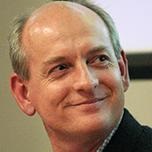
Professor of Electrical Engineering and Computer Sciences, UC-Berkeley, and Adjunct Professor of Neurological Surgery, UC-San Francisco
Stuart Russell is a Professor of Computer Science at Berkeley. He is a fellow of AAAI, ACM, and AAAS, winner of the IJCAI Computers and Thought Award, holder of the Chaire Blaise Pascal in Paris from 2012 to 2014, and author (with Peter Norvig) of "Artificial Intelligence: A Modern Approach," the standard text in the field. He has worked with the UN on monitoring for the CTBT and on discussions around autonomous weapons.
|
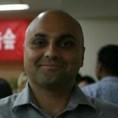 Neil Sahota Neil Sahota
World Wide Business Development Leader at IBM Watson
Neil Sahota (萨冠军) is an IBM Master Inventor and World Wide Business Development Leader in the IBM Watson Group. With over 15+ years of experience in business, he works with Global Fortune 500 clients, government organizations, and high growth business partners to ideate next generation products/solutions powered by Watson. Parts of Neil’s responsibilities include identifying target markets, developing business cases, and creating the market launch strategy. Prior to this role, he was a Thought Leader Consultant and Practice Leader in IBM Global Business Services where he was responsible for the sales and delivery of complex consulting engagements spanning business strategy, new product development, revenue optimization, process improvement, and business and system integration. His work experience spans multiple industries including healthcare, life sciences, retail, travel and transportation, energy and utilities, automotive, telecommunications, media/communication, and government. Moreover, Neil is one of the few IBMers selected for IBM's Corporate Service Corps leadership program that pairs leaders with NGOs to perform community driven economic development projects. For his assignment, Neil lived and worked in Ningbo, China where he partnered with Chinese corporate CEOs to create a leadership development program.
In addition to his professional work, Neil actively volunteers his time to help nonprofits and foundations with event management, fund raising, grant reviews, and site visits. Neil is also a dedicated member of the University of California, Irvine (UCI) Alumni Association and a former member on the UCI Alumni Board of Directors and Executive Committee. As the former VP of Programs, he developed the Anteater MeetUps, Virtual Roundtables, and cross-school partnerships for joint events. Neil also serves on the Board of Directors for the Orange County Marathon and actively supports their work with the OC Kids program in fighting childhood obesity.
|
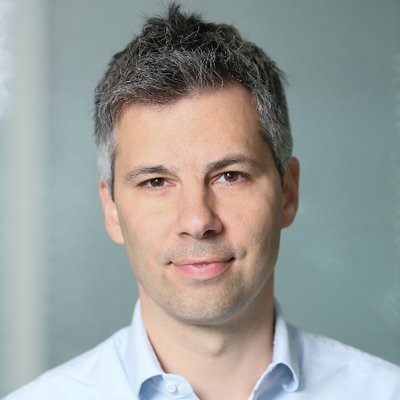 Marcel Salathé
Marcel Salathé
Professor & Head of the Digital Epidemiology lab, EPFLMarcel Salathé is Associate Professor at EPFL and head of the Digital Epidemiology lab. His interest lies in combining machine learning with the broad usage of online mobile technology to build innovative health systems. He is also deeply involved in online education as academic director of the EPFL Extension School. |
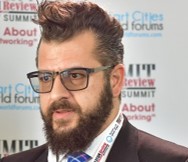 Toufi Saliba Toufi Saliba
AI Decentralized
Toufi Saliba is CEO, PrivacyShell and Chair of the ACM Practitioner Board Conference Committee. Toufi's background is mainly in Machine Learning, Decentralized Governance, Distributed Computing, and Cryptography. He'd TODA's protocol co-author. He has authored and co-authored several algorithms, protocols, and patents. Toufi's companies have had several exits for software that he built from the ground up, some ended up at Google, HP and Intel. He sits on multiple Silicon Valley start-up boards, is the founder of the TodaQ Foundation and Chair of the ACM Practitioner Board Conference Committee.
Currently, Toufi runs a start-up factory and InfoSec advisory with Todd Gebhart (ex-Co-President of McAfee and Vice-Chairman of Intel Security) and Dann Toliver (ex-NASA scientist and cryptographer). The firm is called PrivacyShell Corp with offices in San Francisco, Palo Alto, and Toronto. PrivacyShell's portfolio founders have an aggregate of over $27B in exits. PrivacyShell academic partners are growing, currently from Cornell, Stanford, Maryland, Technion, University of Toronto, University of Illinois Urbana-Champaign, Berkley, and MIT.
Toufi's #1 goal in life is enhancing technology to help achieve global prosperity while building profitable businesses and enablements from within. |
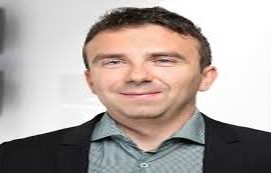 Wojciech Samek
Wojciech Samek
Head of Machine Learning Group, Fraunhofer Heinrich Hertz InstituteWojciech Samek is Head of the Machine Learning Group at Fraunhofer Heinrich Hertz, and Research Fellow at the Berlin Big Data Center. He studied Computer Science in Berlin and Edinburgh, was a Visiting Researcher at NASA Ames Research Center, Mountain View, CA, and received the Dr. rer. nat. degree from the Technical University of Berlin, Germany. Wojciech is a member of the editorial board of Digital Signal Processing and author of over 80 publications, predominantly in the areas deep learning, robust signal processing, and explainable artificial intelligence (XAI). He organized workshops and gave tutorials on interpretable machine learning at flagship conferences such as ICANN, ACCV, MICCAI, CVPR, ICASSP and NIPS. He is also the Chairman of the working group on "Data Formats & ML Technologies" at the ITU Focus Group on Machine Learning for Future Networks including 5G.
|
 Eyal Santo Eyal Santo
Founder and CEO, UMo – Urban Mobility
An urbanist, entrepreneur and an avid cyclist, 54 year old Eyal is father of 2, from Tel Aviv, Israel. A physicist by education, Eyal served 20 years in the Israeli hitech, 1987-2007.
Taking a pause from hitech in 2007, Eyal was recruited in 2008 to run a cycling company, representing 2 German brands in Israel. Running the company for 3 years, Eyal left in 2011 to establish his own bicycle import business. From 2011 to 2015 EZ-Life was providing bicycles to the corporate market through operational leasing, developing and managing corporate cycling policies for organizations wishing to add green urban mobility to their human resources.
Travelling the almost all of the world's leading bicycle cities from 2010-2015, Eyal became an urban consultant in 2015, advising cities in Israel on cycling infrastructure, cycling culture and bikenomics – cycling economics.
In 2017 Eyal established Umo – Urban Mobility, a technology start-up developing AI solution to help cities save billions of dollars by engaging their people, incentivising and rewarding them for changing onto more sustainable life-style. Starting with urban mobility, we will enable cities creating a behavior change, via incentivizing their people, their corporate employers and local business to lower the use of private cars and polluting delivery vehicles, and raise use of sustainable urban mobility and logistics. UMo's AI solution will also help cities implement their policies on self driving cars, making sure they move around our streets in the most sustainable manner. |
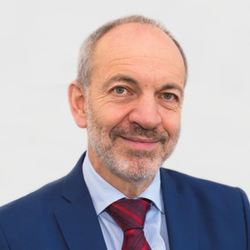 Reinhard SchollDeputy to the Director of the Telecommunication Standardization Bureau (TSB), ITUDr. Reinhard Scholl is Deputy to the Director of the Telecommunication Standardization Bureau (TSB) since September 2002. Previously he has been with Siemens in Munich, Germany and with ETSI (European Telecommunications Standards Institute). He has also served on the ICANN Board. He received a Ph.D. in physics from the University of Illinois, USA.
Reinhard SchollDeputy to the Director of the Telecommunication Standardization Bureau (TSB), ITUDr. Reinhard Scholl is Deputy to the Director of the Telecommunication Standardization Bureau (TSB) since September 2002. Previously he has been with Siemens in Munich, Germany and with ETSI (European Telecommunications Standards Institute). He has also served on the ICANN Board. He received a Ph.D. in physics from the University of Illinois, USA.
|
 Anita Shah Anita Shah
Managing Director - Kenya Office, Kimetrica
Anita is the Managing Director of the Kimetrica Kenya office. In addition to overseeing operations, client relations and staff welfare, Anita manages specific technical projects.
She has strong development and humanitarian experience and has worked internationally for the past 15 years with the United Nations, International NGOs and the UK Department for International Development.
|
 Kriti SharmaVP of Artificial Intelligence, SageKriti Sharma is the Vice President of Artificial Intelligence at Sage and a leading global voice on AI ethics and its impact on society. She built her first robot at the age of 16 in India and has been building AI technologies to solve global issues ever since, from productivity to education to domestic violence. Kriti was recently named in the Forbes 30 Under 30 list for advancements in AI and was included in the Recode 100 list of key influencers 2017. She was invited to the inaugural Obama Foundation Summit as a Civic Leader for her work in ethical technology. She is a Fellow of the Royal Society of Arts, Google Grace Hopper Scholar and recently gave expert testimony to the UK Parliament in the House of Lords on AI Policy.
Kriti SharmaVP of Artificial Intelligence, SageKriti Sharma is the Vice President of Artificial Intelligence at Sage and a leading global voice on AI ethics and its impact on society. She built her first robot at the age of 16 in India and has been building AI technologies to solve global issues ever since, from productivity to education to domestic violence. Kriti was recently named in the Forbes 30 Under 30 list for advancements in AI and was included in the Recode 100 list of key influencers 2017. She was invited to the inaugural Obama Foundation Summit as a Civic Leader for her work in ethical technology. She is a Fellow of the Royal Society of Arts, Google Grace Hopper Scholar and recently gave expert testimony to the UK Parliament in the House of Lords on AI Policy.
|

Arun Shroff
Co-founder & CTO at Medindia; Director of Technology & Innovation, STAR Associates, USA
Arun Shroff is a tech entrepreneur who has founded and grown multiple technology companies in USA and India. Arun is co-founder and CTO at Medindia.net – a leading health website, visited by several million visitors each month, and whose mission is to empower everyone with the information and tools needed to take charge of their health and lead healthier lives.
Arun is also Director of Technology & Innovation at STAR Associates, USA, providing strategic and advisory services to early stage technology companies in Artificial Intelligence, Robotics, blockchain, cybersecurity, biomedical, health and telemedicine. In addition, Arun is founder ofFrontPoint Systems, Inc. a web solutions provider. He also volunteers his time to help several non-profits, including MOHAN USA Inc. and MOHAN Foundation, India - non-profits promoting ethical organ donation, and IIMPACT, an NGO offering free primary education to girls in India. Arun has a B.Tech from IIT Madras, an MBA from IIM, Ahmedabad, and a M.S. in Computer Science from Pennsylvania State University.
Arun and his team are currently applying the latest advances in Artificial Intelligence for detecting and diagnosing diseases, including a model for early detection of Diabetic Retinopathy, a leading cause of blindness worldwide. Arun believes technology and Artificial Intelligence are crucial to solving many global health challenges, particularly in the developing and underserved areas of the world, by bridging critical gaps in the shortage of specialists and resources. You can connect with him on LinkedIn or Twitter (@arunshroff)
|
Elena Sinel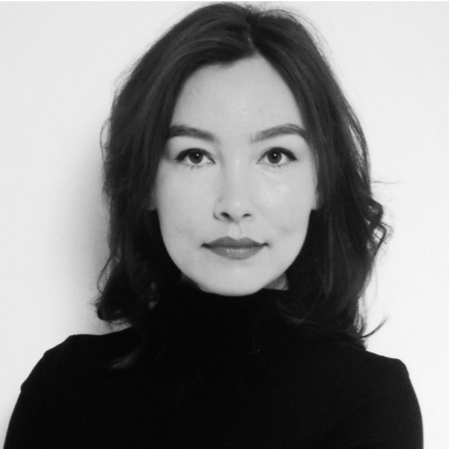
Founder, Teens in AI; Founder, Acorn Aspirations
Elena is a social entrepreneur and founder of
Teens In AI and
Acorn Aspirations, motivated to make a difference in the world by empowering young people aged 12-18 to solve real problems through technologies: AI, VR, AR, MR and blockchain. She started Acorn Aspirations because at the time when her daughter Victoria (now 16) entered secondary school, she realised children were still being taught by methods set up for factory workers some 200 years ago. She explored alternative frameworks and took Victoria to hackathons and other similar events where Victoria learned agile and "lean" frameworks, design thinking and empathy, how to ask questions and remain curious, how to innovate, think outside of the box, innovate and solve problems through technologies and ultimately, how to learn.
Elena ran her first hackathon in November 2015 with 150 people, 70 of which were teenagers aged 14-18. Since then, she has run over 10 hackathons, accelerators, bootcamps and a youth conference and worked with over 1500 children from across the world. Kids as young as 12 are creating VR experiences to detect dyslexia, launch apps that address challenges in education, create augmented reality experiences, tackle mental health using machine learning algorithms, develop algorithms that detect leaks in pipes, participate in research projects at universities across London, win competitions and travel to Google in Silicon Valley and even teach others the science of creating skills for Amazon Alexa or chatbots.
Teens In AI is Elena's latest initiative, spurred by her passion for AI and its ability to create positive and lasting impact on the world. Teens in AI exists to increase diversity and inclusion in artificial intelligence. It aims to democratise AI and create pipelines for underrepresented talent through a combination of expert mentoring, talks, workshops, hackathons, accelerators, company tours and networking opportunities that give young people aged 12-18 early exposure to AI for social good. The vision is for AI to be developed by a diverse group of thinkers and doers advancing AI for humanity's benefit.
Elena is an experienced keynote speaker and frequently speaks on panels about the future of work, future of education, innovation in education, on whether or not robots take away jobs, how to engage GenZ and make them fit for the 21 century jobs, how to equip GenZ with 21st century skills, how to make STEM careers attractive for girls and more. She spoke at London Stock Exchange, Wayra and Telefonica Open Futures events, to name a few.
Prior to this, Elena worked as international specialist consultant with 9 years of experience in poverty reduction strategies, rural livelihood development and poverty alleviation with a specific focus on creation of small and medium enterprise development, product design, marketing and fundraising in Central Asia, the Balkans, Ethiopia and Bangladesh where she worked in international organisations, including ACTED, British Council, UNDP and World Bank. Her academic background is in Politics and International Relations (BA, LSE) and Conflict, Security and Development (MA, King's College London). |
|---|
Ambassador Amandeep Singh Gill
Permanent Representative of India to the Conference on Disarmament; Taskforce on AI for India's Economic Transformation
Amandeep Singh Gill is India’s Ambassador and Permanent Representative to the Conference on Disarmament in Geneva. He joined the Indian Foreign Service in 1992. Apart from headquarters, he has served abroad at the Indian Missions in Tehran, Colombo and Geneva. From 2013-2016, he served as Head of the Disarmament and International Security Affairs Division in the Ministry of External Affairs.
Amandeep Gill is currently Chair of the Group of Governmental Experts of the Convention on Certain Conventional Weapons (CCW) on emerging technologies in the area of lethal autonomous weapon systems. He serves on the UN Secretary General’s Advisory Board on Disarmament Matters and has served earlier on the UN Secretary General’s panels of experts on the Fissile Material Cut-off Treaty (FMCT), Small Arms & Light Weapons and on Missiles. In 2017, he helped set up the National Task Force on Artificial Intelligence for India’s Economic Transformation.
Amandeep Gill has a B Tech in electronics and electrical communications from Punjab University, Chandigarh and an Advanced Diploma in French History and Language from Geneva University. His PhD degree from King's College London is on Nuclear Learning in Multilateral Forums. During 2008-2009, he was a visiting scholar at Stanford University's Centre for International Security and Cooperation (CISAC). He has an abiding professional interest in science, security and international policy learning. His personal interests include creative writing, education, Yoga and sustainable agriculture.
|
|---|
Nao Norman Sipula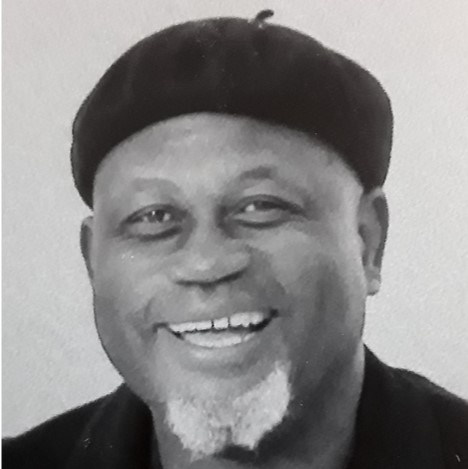
CEO and Founder, WatIF Health
CEO, Founder WatIF Health, Senior consultant ICT applications for resource poor communities
|
|---|
Uyi Stewart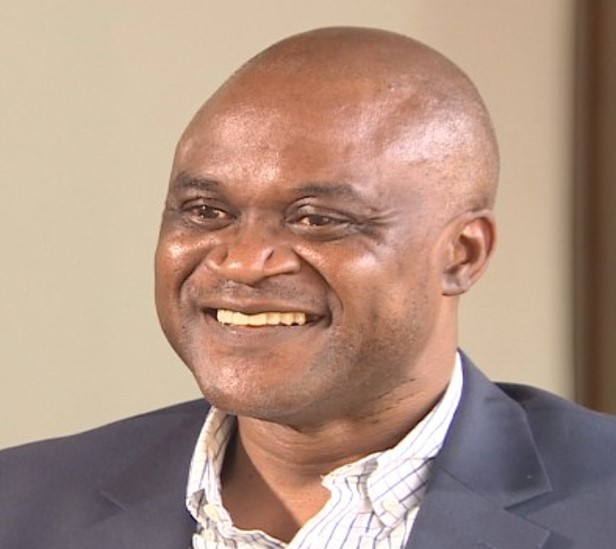
Director of Global Development Strategy and Data & Analytics, Bill and Melinda Gates Foundation
Uyi is Director, Strategy, Data and Analytics, Bill and Melinda Gates foundation. He has more than 20 years of experience in leading teams that develop and deploy innovative AI technologies to solve a wide variety of data-related problems, from the use of big data to combat the Ebola outbreak via behavior change, transforming advocacy models using data to re-engineer government process (ease of doing business), to real-time translations systems and the pioneering of traffic-status applications in Nairobi.
Uyi recently joined Gates foundation and previously spent more than 10 years with IBM Research, where he was most recently a Distinguished Engineer (one of the firm's highest technical honors), and the Co-Founder and Chief Scientist of IBM Research – Africa, Nairobi, Kenya. Prior to IBM, Uyi held technical leadership positions with AT&T Labs, Call Sciences and Nuance Communications. Uyi holds a PhD in Linguistics with specialization in generative syntax and language interfaces from McGill University, a Master of Philosophy in Linguistics from Cambridge and a Bachelor of Arts from the University of Benin, Nigeria. |
|---|
Toshie Takahashi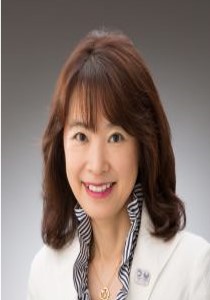
Professor in the School of Culture, Media and Society, Waseda University
Toshie Takahashi is Professor in the School of Culture, Media and Society, Waseda University, Tokyo and has held visiting appointments at the University of Oxford as well as Harvard's Berkman Center for Internet and Society. Currently, she is a member of common room of Kellogg College at the University of Oxford.
Her "complexity model of communication" showed how youths engaged with digital media in ways that thrived on chaos, and was adaptive and self-organising. In some ways, this proved to be a precursor to what is happening in the fourth industrial revolution, in the worlds of IoT, AR, and AI. Takahashi's current work focuses on the rise of the so-called "Society 5.0", a hyper smart society as conceived in Japan in its march towards 2020.
A media ethnographer, her writings have been included in both Japanese and International Media Studies anthologies, for example, "Towards the age of Digital Wisdom" (2016, Shiyosha, in Japanese), Audience Studies: A Japanese Perspective (2009, Routledge), "The Language of Social Media: Community and Identity on the Internet". (P. Seargeant, and C. Tagg eds, 2014, Palgrave), Deconstructing Digital Natives: Young People, Technology and the New Literacies (M. Thomas ed., 2011, Routledge), International Handbook of Children, Media and Culture (K. Drotner and S.Livingstone eds., 2008, Sage), the journal New Media and Society (2010, Sage), the journal Global Media and Communication (2007, Sage).
Professor Takahashi graduated with a PhD in Media and Communications from the London School of Economics and Political Science, an MA in Sociology from the University of Tokyo and a BSc in Mathematics from Ochanomizu University.
Finally, Takahashi sits on the technology advisory committee of The Tokyo Organising Committee of the Olympic and Paralympic Games 2020. |
Anne Torill Nordsletta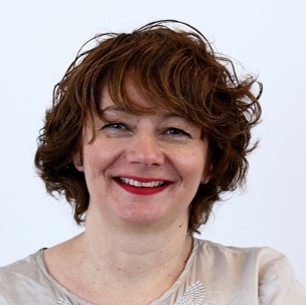
Head of Department, Health Analytics, Norwegian Centre for E-health Research
Anne Torill Nordsletta is head of Health Analytics and a member of the leadership team at the Norwegian Centre for E-health Research. She is responsible of building the health analytics department, where the team recently has worked on gaining knowledge and competency in the field of machine learning in health care. Anne also oversees a range of research projects and assessments focusing on natural language processing techniques, infrastructure for privacy preserving data mining and governance and leadership within e-health.
Previously a business analyst at the Mayo Clinic Cancer Center and Alliance for Clinical Trials in Oncology (alliance) in Rochester, Minnesota, and at the University Hospital of North Norway. She holds degrees in economics from the Norwegian University of Life science as well as a Masters of Business Administration from Saint Mary's University, United States. |
Aimee van Wynsberghe
Co-Founder and Co-Director, Foundation for Responsible Robotics
Aimee van Wynsberghe has been working in ICT and robotics since 2004. She began her career as part of a research team investigating the network variables related to surgical robots in Canada at the CSTAR (Canadian Surgical Technologies and Advance Robotics) Institute. She is Assistant Professor in Ethics and Technology and the TU Delft. She is co-founder and co-director of the Foundation for Responsible Robotics and on the board of the Institute for Accountability and Internet Democracy. She serves as a member of the Advisory board for the AI & Intelligent Automation Network and is head of the 4TU Center for Ethics and Technology robotics task force. Aimee has been named one of the Netherlands top 400 influential women under 38 by VIVAand was named one of the 25 'women in robotics you need to know about'. She is author of the book Healthcare Robots: Ethics, Design, and Implementation and has been awarded an NWO personal research grant to study how we can responsibly design service robots. She has been interviewed by BBC, Quartz, Financial Times, and other International news media on the topic of ethics and robots, and is invited to speak at International conferences and summits. |
Lav Varshney
Assistant Professor of Electrical and Computer Engineering, the University of Illinois at Urbana-Champaign
Lav R. Varshney is an assistant professor of electrical and computer engineering at the University of Illinois at Urbana-Champaign. His research focuses on the science and engineering of informational systems involving humans and machines, driven by a desire to improve individual and collective intelligence in modern environments. His central results have been in establishing information-theoretic limits, optimal designs, and practical deployments in systems ranging from nanoscale computing and neuroscience to social computing and computational creativity.
|
Effy Vayena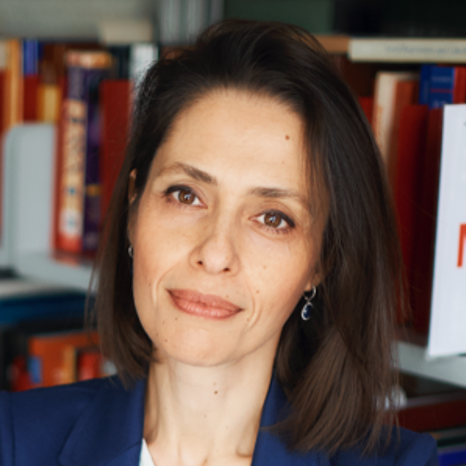
Professor of Bioethics, Health Ethics and Policy Lab, ETH Zurich
Effy Vayena is a Professor of Bioethics at the Swiss Federal Institute of Technology (ETHZ) and renowned expert at the intersection of medicine, data, and ethics. Her work focuses on important societal issues of data and technology as they relate to scientific progress and how it is or should be applied to public and personal health. Vayena completed her education as a social historian with a PhD in Medical History from University of Minnesota. A keen interest in health policy has led her to work with the World Health Organization. Upon her return to academia, Vayena was awarded a professorship by the Swiss National Science Foundation. She founded the Health Ethics and Policy Lab to tackle pressing questions that arise through technological advances such as genomic technologies and big data analytics in healthcare and research. She received her habilitation from the University of Zurich in the field of bioethics and policy and has been appointed a Visiting Professor at the Center for Bioethics at Harvard Medical School and a Faculty Associate at the Berkman Klein Center for Internet & Society at Harvard University, where she was previously a Fellow. She is a member of Swiss Academy of Medical Sciences and chairs the Ethical, Legal and Societal Implications advisory group of the Swiss Personalized Health Network. Effy Vayena is a leading expert in the dynamic and diverse field of health data and ethics, successfully leveraging her academic work and international network to promote a fruitful debate about the ethics of health in the digital age. She has previously worked with the Wellcome Trust, OECD, Commonwealth Fund, Chatham House, and academic institutions and governments around the world. |
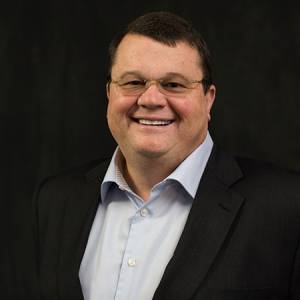 Maurizio Vecchione Maurizio Vecchione
Executive Vice President of Global Good and Research, Intellectual Ventures
Maurizio Vecchione is the executive vice president of the Global Good & Research group at Intellectual Ventures where he oversees the integrated efforts of the Global Good Fund, the Intellectual Ventures Laboratory, and the Institute for Disease Modeling.
The Global Good Fund is IV’s collaboration with Bill Gates that invents and deploys technologies to improve life for the world’s neediest populations. The organization works in global health to improve the diagnosis and prevention of some of the world’s most menacing diseases—often applying data-driven analysis from the Institute for Disease Modeling—and also works in global development, seeking to increase farm productivity and food security for smallholder farm families in low-income nations. Research and development is provided by the multi-disciplinary IV Laboratory in cooperation with partner institutions worldwide.
With more than 30 years of industry experience in technology and life sciences, Mr. Vecchione has helped build nine startups and launch more than 50 commercial products spanning health technologies and therapeutics as well as telecommunications, information systems, and material sciences. He most recently served as CEO of Arrogene, commercializing a nanotechnology platform for cancer therapeutics and diagnostics, and was CEO of telemedicine pioneer CompuMed.
Mr. Vecchione is an editorial advisory board member for IEEE Spectrum magazine. He’s also a member of the Board of Advisors for the Ronald Reagan UCLA Medical Center and the Leadership Council for UW Medicine/UW School of Public Health Department of Global Health. Additionally, he serves on the Board of Trustees of the Italian Scientists and Scholars of North America Foundation, which promotes collaboration between North American researchers and Italian Academic and Government institutions.
As an inventor himself, Mr. Vecchione is named on multiple U.S. patents and patent applications related to imaging, image processing, nano-bio-polymers, and telecommunications. He is a member of the American Physical Society, the American Chemical Society, the American Association for the Advancement of Science, the American Computing Machinery Society, and the Institute of Electrical and Electronics Engineers.
|
Frans-Anton Vermast
Senior Strategy Advisor and Smart City Ambassador, Amsterdam Smart City
Since 2008 Frans-Anton Vermast MBA (1969) is Senior Strategy Advisor and Smart City Ambassador Amsterdam Smart City. He is an expert in searching for the opportunities of novel appliances and services that make cities a more habitable place for its citizens to live, work and play pleasantly.
Furthermore, he specialises in developing Smart Cities as open and user centric innovative platforms as well as holistic and cross silo approaches through collaborative bottom up approaches and citizens engagement. Apart from best and next practises Mr Vermast is not afraid to share failures and lessons learned to prevent other cities making the same mistakes. His objective for working in projects like Smart Work, Smart Grids, Smart Living, Smart City and Smart Mobility is to create a more sustainable and liveable environment and boost social and economic benefits that will result in more happy citizens. From this role Mr Vermast is active in several roles within City Protocol: member of Board of
Directors, thematic Area Director Society and Director Public Affairs.
Mr Vermast has extensive Dutch, European and global knowledge and experience in facilitating the participation of local governments, municipalities and communities in these initiatives.
He is a visiting speaker at Leiden University & Radboud University Nijmegen and guest lecturer at the Universities of Applied Sciences of the Hague and HAN. He also has a great global training experience both professional and as volunteer for the Liberals. He is also a sought-after moderator and day chair for all types of conferences. |
Jeanine Vos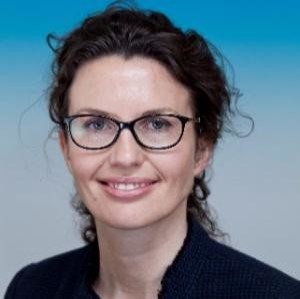
Head of SDG Accelerator, GSMA
Jeanine Vos is Head of SDG Accelerator at the GSMA, which aims to accelerate and amplify the mobile industry's impact in achieving the United Nations Sustainable Development Goals. The first initiative was launched in 2017, with the objective to fast-track the deployment of Big Data for Social Good. Working closely with an Advisory Panel of global agencies and partners, and a Taskforce of mobile operators from around the world, the BD4SG initiative is both establishing best practices and common approaches, as well as delivering collaborative implementations with operators and partners on the ground. Jeanine is responsible for strategy and delivery, working closely with member companies and ecosystem partners to identify, prioritise and execute activities, and communicate findings. The GSMA represents the interests of 1000+ companies in the mobile communications industry worldwide.
Prior to this, Jeanine was Executive Director, Connected Living at the GSMA, leading initiatives to help unlock the consumer, societal and business benefits of the Internet of Things (IoT). Jeanine led a portfolio of projects, research and strategic partnerships to drive innovation, ensure a sustainable business model and unlock market opportunities in digital health, mobile learning, smart cities and connected cars. Before joining the GSMA in 2005, Jeanine worked at T-Mobile in the areas of Public Policy and Strategy. She holds an MSc from the Delft University of Technology and an MSc from the London School of Economics.
|
Wendell Wallach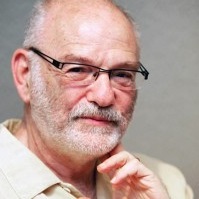
Consultant, Ethicist, and Scholar at Yale University's Interdisciplinary Center for Bioethics, and Senior Advisor tothe Hastings Center, and the World Economic Forum
Wendell Wallach is senior advisor to The Hastings Center. He is also a scholar, consultant, and author at Yale University's Interdisciplinary Center for Bioethics, where he has chaired Technology and Ethics studies for the past eleven years. His latest book, a primer on emerging technologies, is entitled, A Dangerous Master: How to keep technology from slipping beyond our control. In addition, he co-authored (with Colin Allen) Moral Machines: Teaching Robots Right From Wrong. The eight volume Library of Essays on the Ethics of Emerging Technologies (edited by Wallach) was published by Routledge in Winter 2017. He received the World Technology Award for Ethics in 2014 and for Journalism and Media in 2015, as well as a Fulbright Research Chair at the University of Ottawa in 2015-2016. The World Economic Forum appointed Mr. Wallach co-chair of its Global Future Council on Technology, Values, and Policy for the 2016-2018 term. |
Ingmar Weber 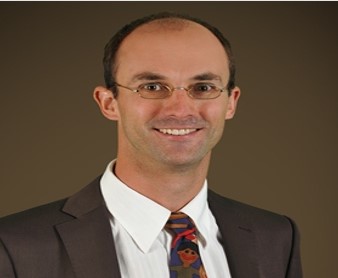
Research Director for Social Computing, Qatar Computing Research Institute (QCRI)
Ingmar Weber (@ingmarweber) is the Research Director for Social Computing at the Qatar Computing Research Institute (QCRI). His interdisciplinary research lies in the area of Computational Social Science and involves analyzing large amounts of online user-generated data. In his work he tackles research questions related to (i) digital demography and migration monitoring, (ii) societal polarization and political extremism, and (iii) lifestyle disease surveillance and public health communication. Together with over 150 co-authors, including demographers, sociologists, medical doctors, political scientists and communication scholars, he has published over 100 peer-reviewed articles and his work is frequently covered in main-stream media. He holds a BA & Ma from Cambridge University and did his PhD at the Max-Planck Institute for Computer Science in Germany. He's an ACM Distinguished Speaker as well as a Senior Member of AAAI and IEEE. |
|---|
Adrian Weller 
Programme Director for Artificial Intelligence, Alan Turing Institute
Adrian Weller is a senior research fellow in machine learning at the University of Cambridge. He has broad interests across machine learning and artificial intelligence (AI), their applications, and their implications for society, including: scalability, reliability, interpretability, fairness, privacy, ethics, law, social policy, finance, safety and methods for big data.
Adrian is the Programme Director for AI at The Alan Turing Institute (national institute for data science and AI), where he is also a Turing Fellow leading a group on Fairness, Transparency and Privacy. He is a senior research fellow at the Leverhulme Centre for the Future of Intelligence (CFI) leading work on Trust and Transparency; the David MacKay Newton research fellow at Darwin College; and an advisor to the Centre for Science and Policy (CSaP), and the Centre for the Study of Existential Risk (CSER).
Previously, Adrian held senior positions in finance. He continues to be active as an angel investor and advisor. |
|---|
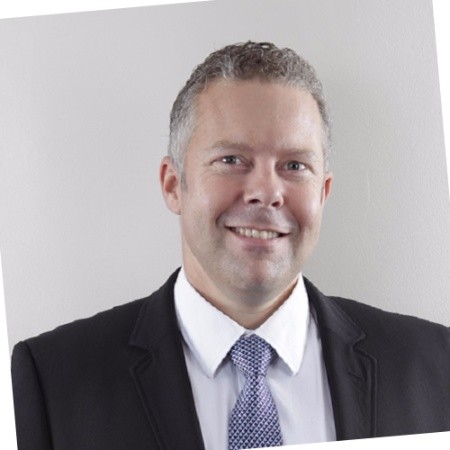 Frederic WernerSenior Communications & Membership Officer, ITU
Frederic WernerSenior Communications & Membership Officer, ITU
Fred is a seasoned Association Management professional with a passion for telecommunications specializing in strategic communications, community building, and international relations. Fred is currently responsible for Communications and Membership for ITU's standardization bureau. Previously, he was the Communications & Program Director for ETIS – The Global IT Association for Telecommunications. Fred is deeply involved with innovation, digital transformation, financial inclusion, 5G and AI via numerous ICT industry projects, working groups, and events he has developed. He has also been credited with helping the telecom industry create a pan-European community of cyber-security experts.
Fred is a key figure in the European telecom industry and as such has:
- A unique perspective across multiple telecom and ICT segments, delivering strategic insights and program development for his members
- A strong reputation for establishing trusted partnerships, collaboration and pilot-projects for the ICT industry
- The ability to translate members' technical challenges into viable knowledge sharing activities like working groups, benchmarking, best practices and events
Fred is an optimistic, self-starter who excels under pressure and regularly exceeds organizational objectives. Some of his key professional strengths include strategic communications, international relations, business development, online communities, community/consensus building and event design.
Fred has a B.A. in Business & Human Resources Management, a Minor in Communications, an MBA in International Business and a Technical MBA in Managing Telecoms Technology. Previously he worked in the Conformity Assessment sector and was involved in numerous EU development projects. Fred is an avid global traveler and has lived in many diverse countries including the United Kingdom, Belgium, Senegal, Turkey, Austria, Philippines, Switzerland, and Hungary giving him a unique global viewpoint. |
|---|
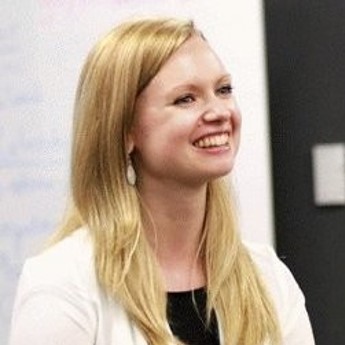 Jess WhittlestonePostdoctoral Research Associate, Leverhulme Centre for the Future of Intelligence, CFI, Cambridge
Jess WhittlestonePostdoctoral Research Associate, Leverhulme Centre for the Future of Intelligence, CFI, Cambridge
Jess is a research associate focused on AI policy. She is particularly interested in how we can build appropriate levels of trust in AI systems amongst policymakers and the general public, and how to avoid harmful misperceptions of the capabilities and risks of AI.
Jess has a PhD in Behavioural Science from the University of Warwick, and a first class degree in Mathematics and Philosophy from Oxford University. In her PhD, she argued that confirmation bias is not necessarily as "irrational" as it seems, with implications for how we think about the strengths and weaknesses of human reasoning. Previously, Jess worked for the Behavioural Insights Team, where she advised various government departments on improving their use of behavioural science, evidence, and evaluation methods, with a particular focus on foreign policy and security. She has also worked as a freelance journalist and has had her writing published in Aeon, Quartz, and Vox.
|
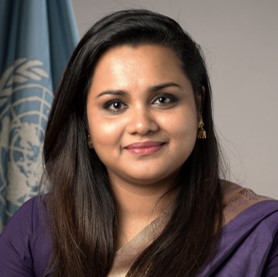 Jayathma Wickramanayake Jayathma Wickramanayake
UN Secretary-General's Envoy on Youth
Ms. Jayathma Wickramanayake was appointed as the UN Secretary-General’s Envoy on Youth in June 2017 at the age of 26. In this role, Jayathma works to expand the UN’s youth engagement and advocacy efforts across all four pillars of work – sustainable development, human rights, peace and security and humanitarian action – and serves as a representative of and advisor to the Secretary-General.
Originally from Sri Lanka, Ms. Wickramanayake has worked extensively on youth development and participation, and has played a key role in transforming the youth development sector in her home country.
Prior to taking up her post, Ms. Wickramanayake was instrumental in creating the movement for civic and political engagement of young people, especially young women in Sri Lanka named “Hashtag Generation”. Previously, she advocated for global youth development on an international level including as the first ever Sri Lankan Youth Delegate to the United Nations and as the youth lead negotiator and member of the International Youth Task Force of the World Conference on Youth 2014 where she played a critical role in mainstreaming youth in the Post-2015 Process and in the establishment of World Youth Skills Day.
|
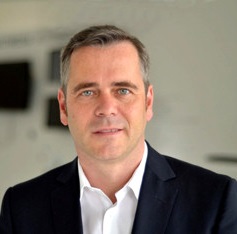 Thomas WiegandProfessor at TU Berlin, and Executive Director of Fraunhofer Heinrich Hertz InstituteThomas Wiegand is a professor in the department of Electrical Engineering and Computer Science at the Technical University of Berlin and is jointly heading the Fraunhofer Heinrich Hertz Institute, Berlin, Germany. He received the Dipl.-Ing. degree in Electrical Engineering from the Technical University of Hamburg-Harburg, Germany, in 1995 and the Dr.-Ing. degree from the University of Erlangen-Nuremberg, Germany, in 2000. As a student, he was a Visiting Researcher at Kobe University, Japan, the University of California at Santa Barbara and Stanford University, USA, where he also returned as a visiting professor. He was a consultant to Skyfire, Inc., Mountain View, CA, and is currently a consultant to Vidyo, Inc., Hackensack NJ, USA.
Thomas WiegandProfessor at TU Berlin, and Executive Director of Fraunhofer Heinrich Hertz InstituteThomas Wiegand is a professor in the department of Electrical Engineering and Computer Science at the Technical University of Berlin and is jointly heading the Fraunhofer Heinrich Hertz Institute, Berlin, Germany. He received the Dipl.-Ing. degree in Electrical Engineering from the Technical University of Hamburg-Harburg, Germany, in 1995 and the Dr.-Ing. degree from the University of Erlangen-Nuremberg, Germany, in 2000. As a student, he was a Visiting Researcher at Kobe University, Japan, the University of California at Santa Barbara and Stanford University, USA, where he also returned as a visiting professor. He was a consultant to Skyfire, Inc., Mountain View, CA, and is currently a consultant to Vidyo, Inc., Hackensack NJ, USA.
|
|---|